ENGAGE
College for Health, Community and Policy
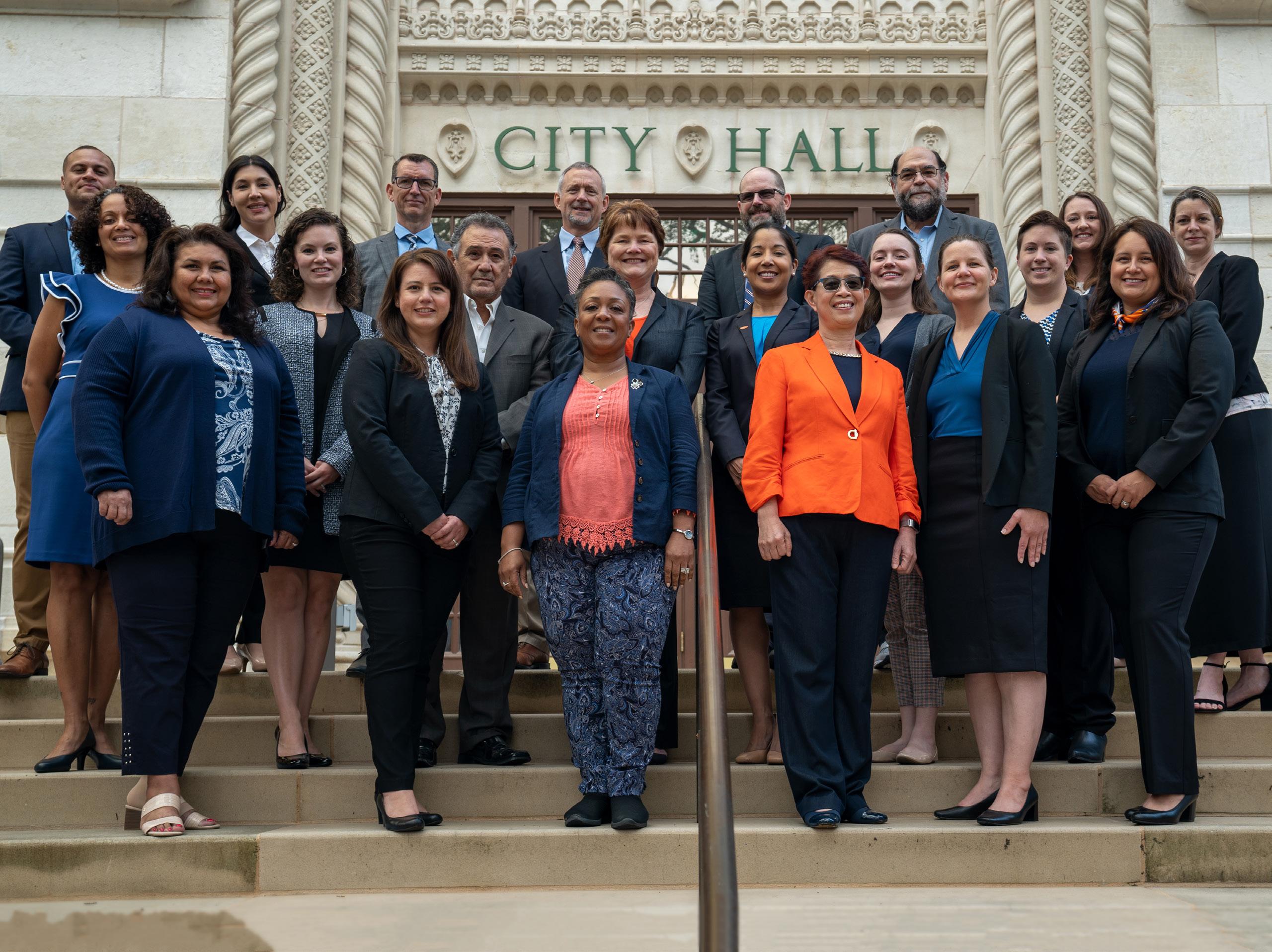
CLASSROOM IN THE COMMUNITY
What started out as classroom assignments often blossomed into lasting relationships that will endure long after students receive their diplomas.
TACKLING CRIME REDUCTION
While violent crime is rising in many American cities, it is decreasing in Dallas.
SUMMER 2022
2
LASTING SOLUTIONS TO COMPLEX ISSUES SUCH AS HEALTH DISPARITIES, HEALTH LITERACY, CRIME RATES, POLICYMAKING AND MORE
UTSA HCAP Administration
Lynne Cossman, Ph.D. Inaugural Dean
Rhonda BeLue, Ph.D.
Associate Dean for Community Engagement and Partnerships
Alberto Cordova, Ph.D.
Associate Dean for Undergraduate Student Success
Kelly Garza Assistant Dean of Fiscal Administration
Erica Sosa, Ph.D.
Associate Dean for Research
Johnelle Sparks, Ph.D.
Associate Dean for Faculty Success and Administration
Rob Tillyer, Ph.D.
Associate Dean for Graduate Student Success Department Chairs
Amy Chanmugam, Ph.D. Social Work
Sandor Dorgo, Ph.D. Kinesiology
Richard Hartley, Ph.D. Criminology and Criminal Justice
Kara Joyner, Ph.D. Demography
Sandra Morissette, Ph.D. Psychology
Sara B. Oswalt, Ph.D. Public Health
Francine Romero, Ph.D. Public Administration
Ray Swisher, Ph.D. Sociology
iHCAP
Institute for Demographic & Socioeconomic Research
Lloyd Potter, Ph.D. Institute for Health Disparities Research
Eric Shattuck, Ph.D.
Center for Community Based and Applied Health Research
Erica Sosa, Ph.D.
Meizi He, Ph.D. Texas Demographic Center
Lloyd Potter, Ph.D.
Stay Connected
To keep up with general news about the College for Health, Community and Policy, we encourage you to visit hcap.utsa.edu. If you would like to receive our monthly e-newsletter, please make sure we have you current email address (send to: hcap@utsa.edu).
To submit class notes and photos, please email hcap@utsa.edu.
Engage is published annually for alumni and friends by the College for Health, Community and Policy. If you have opinions or comments on the articles, please email hcap@utsa.edu or write to us:
Downtown campus
UTSA College for Health, Community and Policy
501 W. Cesar E Chavez Blvd.
San Antonio, TX 78207

Main campus
UTSA College for Health, Community and Policy
1 UTSA Circle San Antonio, TX 78249
Engage staff
Writers: Amanda Cerreto, Diane Gomez, KC Gonzalez, Miladi Nazir, Tricia Lynne Silva
Editors: Amanda Cerreto, Lynne Cossman, Shannon Keen, Julia Wolf
Designers: Peggy Lo, Gregory Schneider
Cover photography by Johnny Bender Productions, LLC
Individual alumni and student photos seen in profiles have been supplied courtesy of the respective subject
14 HCAP IN THE CITY TACKLING CRIME REDUCTION19 6 CLASSROOM IN THE COMMUNITY 1 HCAP by the numbers 1 New faculty 2 Dean's Note 2 Dean’s Advisory Council 4 Collaborative study aims to improve care for veterans with TBI 5 Baird's legacy and commitment to education lives on CONTENTS 9 A new home for students 10 Student Stories 22 Grants and awards distinguish hcap faculty 26 SERVING OUR CITY THROUGH LEADERSHIP 28 UTSA welcomes first Lutcher Brown Endowed Distinguished Professor 29 UTSA makes history with first female Chief of Police–and double HCAP alumna 30 Alumni Stories 38 In Memoriam 38 Leading from within 39 Class notes 41 Upcoming community events
Coralia Vazquez Otero, Ph.D. Assistant Professor, Public Health

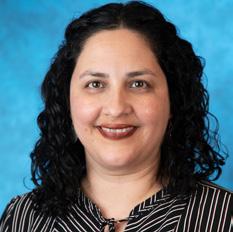
Sandor Dorgo, Ph.D., CSCS, *D, FNSCA
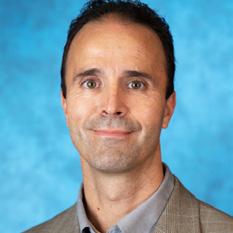
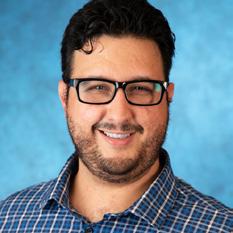

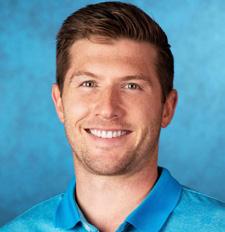
Department Chair and Professor, Kinesiology
Dr. Dorgo is a Professor and the Chair of the Department of Kinesiology at UTSA. His area of interest is physical activity and exercise, with a focus on strength and conditioning and fitness. He has worked with various populations for his research including college and international level athletes, high school athletes, coaches, physically active older adults, and adolescents. He has conducted both laboratory-based projects, as well as communitybased participatory research. Dr. Dorgo is a fellow of the National Strength and Conditioning Association and serves as a Senior Associate Editor at the Journal of Strength and Conditioning Research.
Rhonda BeLue, Ph.D.
Associate Dean for Community Engagement and Partnerships Professor, Public Health Denver Brown, Ph.D. Assistant Professor, Psychology
Jusung Lee, Ph.D. Assistant Professor, Public Health
Alan Meca, Ph.D. Assistant Professor, Psychology
NEW CHAIR NEW FACULTY students6,719 enrolledin2021 28,000+ALUMNI AWARDED$4.8MINGRANTS ACROSS 22PROJECTS 1,849 degreesundergraduate awarded 205graduatedegreesawarded197masters8doctoral SOCIALWORK 60,000PUBLIC HEALTH 45,300 147,169KINESIOLOGY 12,000 CRIME14,563 SOCIOLOGY1,050 PUBLIC ADMINISTRATION5,850 NUTRITION& DIETETICS6,606PSYCH1,800 INTERNSHIP HOURS HCAP BY THE NUMBERS
Dean's Note
This year the College for Health, Community and Policy (HCAP) developed a Signature Project focused on community engagement and partnerships. The intention of the program was to infuse community engagement throughout HCAP—in teaching, in research and in service. Many of the stories you will read in this magazine highlight the accomplishments that we have made in this regard. You will read about our growing relationship with the City of San Antonio—via a master research agreement, the installation of an Associate Dean of Community Engagement and Partnerships, and the establishment of a post-doctoral fellow who works as a single point of contact for towngown relationships between the City of San Antonio and HCAP. We are building partnerships with many other organizations across the city—and will continue to do so.
Dean’s Advisory Council

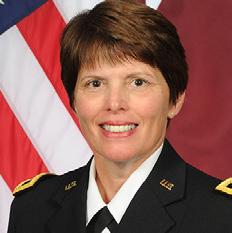
The Council’s mission is to create and implement strategic plans while promoting the college’s mission to community partners and stakeholders. The vision of the Council is to offer support and collaborate with local, regional and nationally recognized experts across the community, health and policy sectors.
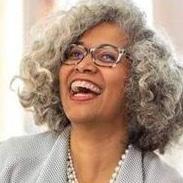


For information on how you can support the Council, reach out to Lisa Hernandez at lisa.hernandez2@utsa.edu
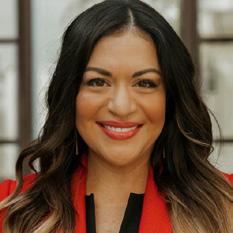
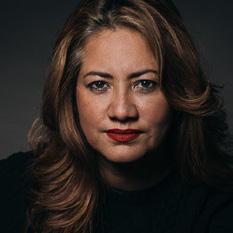 Lynne Cossman
Dean of College for Health, Community and Policy Professor, Demography and Sociology
Phil Beckett, Ph.D.
CEO, Healthcare Access San Antonio (HASA)
Chiquita A. Collins, Ph.D. Associate Vice President, Inclusive Excellence and Health Equity, UT Health San Antonio Vice Dean for Inclusion and Diversity, Chief Diversity Officer, Long School of Medicine
Janie Martinez Gonzalez President, CEO and Digital Engineer, Webhead
Marina Gonzales, JD President and CEO, San Antonio Hispanic Chamber of Commerce
Jimmie O. Keenan, MSN, RN, FACHE, FAAN, Major General (Ret) US Army
Sr. Vice President, Enterprise Clinic Operations, WellMed Medical Management Inc.
Kara Allen
Chief Impact Officer, Spurs Sports & Entertainment
Lynne Cossman
Dean of College for Health, Community and Policy Professor, Demography and Sociology
Phil Beckett, Ph.D.
CEO, Healthcare Access San Antonio (HASA)
Chiquita A. Collins, Ph.D. Associate Vice President, Inclusive Excellence and Health Equity, UT Health San Antonio Vice Dean for Inclusion and Diversity, Chief Diversity Officer, Long School of Medicine
Janie Martinez Gonzalez President, CEO and Digital Engineer, Webhead
Marina Gonzales, JD President and CEO, San Antonio Hispanic Chamber of Commerce
Jimmie O. Keenan, MSN, RN, FACHE, FAAN, Major General (Ret) US Army
Sr. Vice President, Enterprise Clinic Operations, WellMed Medical Management Inc.
Kara Allen
Chief Impact Officer, Spurs Sports & Entertainment
ENGAGE 2|
We are also highlighting our first ever in-person Dean’s Community Lecture Series, which is designed to bring together members of the community with faculty, staff and students to brainstorm about some of our biggest social problems and the relevant solutions. In February we hosted UTSA President Eighmy, City of San Antonio Mayor Ron Nirenberg and President/CEO of Southwest Research Institute (SwRI®), Adam Hamilton. David Yokum of Brown University moderated a discussion about data-driven policy making. We followed this up with a wonderful panel of criminal justice professionals, moderated by new Assistant Professor of Practice Mike Davis, about how to police with our communities. These two events embodied HCAP’s strong commitment to fulfilling UTSA’s urban serving and Hispanicthriving missions.
We have also had several big grant successes. Erica Sosa, our Associate Dean for Research, is leading a research team that is partnering with the City of San Antonio and the University of Texas Health Science Center on a nearly $5 million COVID health literacy research project. We also currently have projects funded by the National
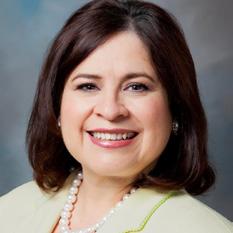


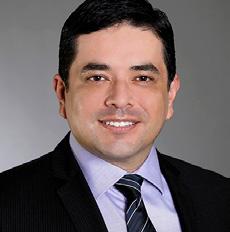
Science Foundation, the National Institutes for Health, and the National Institute of Justice. These projects represent research in most of our nine departments and span topical areas from obesity prevention in Head Start, to nutrition in congregate living facilities to the cumulative financial effects of being victimized as a college student a Minority Serving Institution. All of this funded work dovetails with our mission to improve the health and well-being of San Antonians, Texans, Americans and global citizens, while buttressing UTSA’s new Carnegie research-intensive status and providing research opportunities for undergraduate and graduate students in the college.
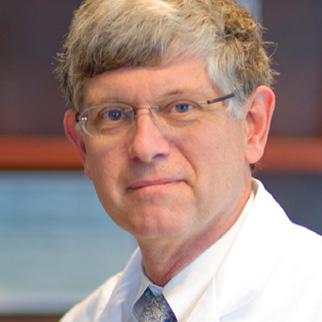
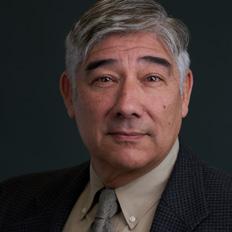
Finally, we are also growing our curricular offerings. We want to develop programs that meet both student and employment demands— that is, programs students are interested in that also have job opportunities upon completion.

At the undergraduate level, we are adding a Bachelor of Science in Health, Aging and Society, as well as a Bachelor of Social Work and a Bachelor of Science in Nutrition and Health. We are also collaborating with the Alvarez College of Business to launch an undergraduate

program in healthcare administration. At the graduate level, we have proposed an interdisciplinary master’s degree in health, community and policy which has four tracks: (1)health promotion, (2) health data analytics and population health, (3) society, community and health and (4) policy. While the program is interdisciplinary, it builds on our strengths in public health, nutrition, demography, sociology and public administration. Finally, we intend to launch a doctorate in applied community research which will provide students with the conceptual and analytic skills needed to identify and address the causes and consequences of social factors, including physical and mental health, crime and safety, as well as poverty and socioeconomic well-being. All of these academic proposals are in process and we are hopeful to be able to offer them to students in the next two to three years.
Thank you all for your hard work promoting us. As a new college, we need to depend on our alumni to spread the word about our mission and accomplishments. We look forward to seeing you at more events in the coming year!
Ted Terrazas
Sr. Vice President of Medical and Business Services, Chenega Corporation
Esteban López, MD, MBA, FAAP, FACP Market Lead- Healthcare and Life Sciences, Americus and Google Cloud
Founder, Hopscotch Health William McManus
Chief of Police, City of San Antonio
Carl Negley, MBA Administrator of the SAVE Clinic
Dr. Lyssa Ochoa
Founder of The SAVE Clinic
Ian M. Thompson, Jr., MD President, Santa Rose Foundation and the Children’s Hospital of San Antonio Foundation
Senator Leticia Van de Putte Co-Founder and President, Andrade-Van de Putte Consulting
Jaime Wesolowski President and CEO, Methodist Healthcare Ministries of South Texas
3
| ENGAGE
Collaborative study aims to improve care for veterans with TBI
Emerging evidence from a study led by Jeffrey Howard, associate professor of public health, suggests that harmful exposures during military service such as traumatic brain injury (TBI) may contribute to long-term mental health, chronic disease and mortality risks.
This is the first study of its kind to estimate the number of excess deaths among a large cohort of post-9/11 military veterans compared to the general U.S. population of the same age, sex and racial/ethnic composition. Excess deaths are defined as deaths that exceed the typical number of expected deaths during a particular period for a given population.
“However, we are not seeing this same pattern with veterans who have served after 9/11.”
In general, exposure to trauma is associated with increased risk of longterm chronic disease such as diabetes, kidney disease and more, as well as a greater risk for individuals to engage with opioids and greater alcohol use. Military veterans have an even higher risk for these factors.
Jeffrey Howard
Associate Professor of public health
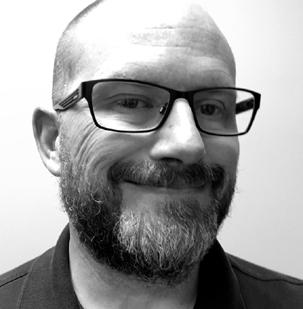
“There are real-world implications for veterans with traumatic brain injury,” Howard said. “The findings of this study provide insight to help health care systems understand the potential burden of morbidity and mortality among this cohort.”
Howard noted that the findings provide heightened awareness of the causes of death, particularly suicide and homicide. “We need to understand where the risks are the greatest and devise better methods of intervening,” he said.
The study has been published in the Journal of the American Medical Association Network Open, a companion publication of the Journal of the American Medical Association

While research from previous wars suggests that military veterans benefited from lower mortality rates than the total U.S. population, recent research suggests that this “healthy soldier effect” may be disappearing among post9/11 veterans.
Howard and his team studied data on 2,516,189 post-9/11 military veterans and discovered that they experienced excess mortality rates compared with the total U.S. population. The numbers of excess deaths were greater among those exposed to TBI.
“After WWII, Korea and Vietnam, veterans of those wars tended to have lower age-specific mortality than the general population because younger, healthier people tend to be selected for military service,” Howard said.
The study’s findings suggest important patterns highlighting increased health risks for veterans. In addition to overall greater mortality risks for veterans compared to the general population, there were dramatically higher mortality risks for veterans exposed to TBI across all causes of death, especially for those with moderate-to-severe TBI.
As noted in the figure below, individuals with moderate or severe TBI had significantly higher mortality rates than veterans without TBI, veterans with mild TBI and the total population. While accidents and suicides contributed the most to the number of excess deaths among veterans with and without TBI, there were also significant numbers of excess deaths from cancer, cardiovascular disease and homicide among veterans with TBI exposure.
“These rates paint a pretty stark picture,” Howard said. “The cost of war is not measured just in terms of combat deaths. Military service can not only come with harmful mental exposures but environmental factors as well which follow service members for many years.”
“After 20 years of war, it is vital to focus attention on what puts veterans at risk for accelerated aging and increased mortality, as well as how it can be mitigated,” he added.
The College for Health, Community and Policy was founded to develop solutions for complex social issues, improving the well-being of society. This study is one of many underway at the college to shed light on complex health risks, with the goal of finding new ways to address the burden of care on community health care systems.
–Amanda Cerreto
ENGAGE 4|
Baird's legacy and commitment to education lives on
In the years after World War II, a young woman named Norma enrolled in college. She was only able to do so because of the benefits she received from her father, who was killed in action during the conflict. There, she met a young man named Raymond Baird, who would go on to graduate school and earn assistantships funded by federal dollars.
While they didn’t know it at the time, the pair would eventually realize the impact of these benefits and in turn make a generous commitment to a university to ensure future students could study without financial burden.
In 2014 and 2015, Raymond and Norma Baird established two endowed funds for UTSA: The Raymond and Norma Baird Endowed Fund for Excellence in Psychology, and the Norma and Raymond Baird Excellence in Education Endowed Faculty Award
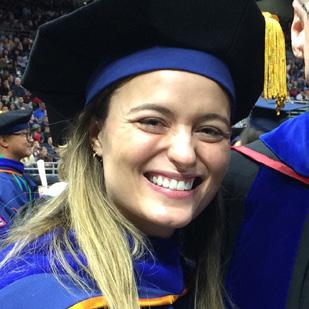
The distinction between the two named endowments is of key importance – one leads with Raymond’s name, and the other with Norma’s. “Without her full, hearty involvement in all of this, it just wouldn’t have ever happened,” Raymond said.
The Excellence in Psychology award supports programs and activities in the Department of Psychology, particularly pertaining to research. The Excellence in Education award co-benefits the Department of Mathematics as well as the Department of Psychology. The funds for this award are used to support and recognize efforts that enhance the effectiveness of undergraduate teaching.
As a longtime professor at UTSA, Baird understands the challenges both faculty and students face – particularly in terms of funding research projects. He and his family also have a long history of receiving financial support through various means.
“Norma was able to go to college because of her father,” Baird said. “By the time I went to graduate school, I worked at the VA hospital as a research assistant and saw a lot of federal dollars go into my graduate education. I appreciate how important that was.”
Baird’s daughter received a full scholarship for her education, enabling her to attend school without stress and strain. Her daughter – Baird’s granddaughter – is currently attending college with help from her father’s veteran benefits.

Baird and his late wife saw how many deserving people were receiving financial help for their education, and wanted to broaden the pool and provide a way for even more students to receive an outstanding education.
As a Professor Emeritus in the Department of Psychology, Baird clearly believes in the importance of the subject. His commitment to the endowed scholarship underlines that belief.
“There are a lot of techniques that have been developed out of the research lab that enable us to do some very good healing,” Baird said. “It was not that long ago when we were lobotomizing people. We have come a long, long way, through research.”
That belief in research – research of healthy brains before the research of disordered brains –led to the creation of a research methods lab at UTSA. “We don’t know who is going to come up with the next breakthrough,” Baird said.

Through these two endowed scholarships, the Bairds’ legacy lives on and countless students and faculty members have benefited from their generosity. Endowments like this ensure that funds go directly to our students and faculty for research and programming.
–Amanda Cerreto
2015
Meghan Crabtree Research Scientist, Colorado State 2017 Jessica Perrotte Asst. Professor, Texas State
2019
Tiffany Berzins
Asst. Professor, Columbus State
Beneficiaries
Donor Profile
|5 ENGAGE
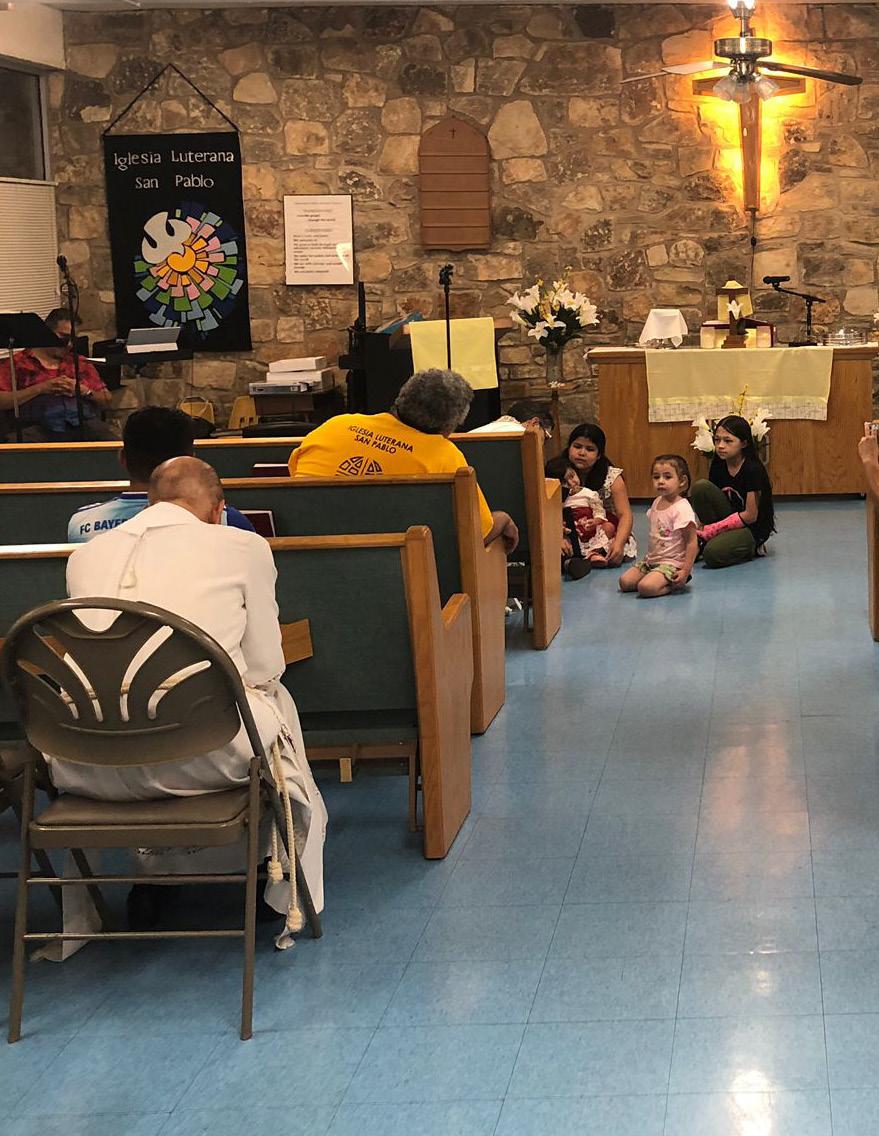
ENGAGE 6|
As UTSA entered academic year 2021-22, Dean Lynne Cossman put forth a Signature Project on community engagement. Faculty partnered with city officials for research projects, grants and collaborative work. Senior leadership members built relationships with difference-makers in the city, planning for future collaborations. But students – the backbone of HCAP – have also found themselves integrated into San Antonio communities. What started out as classroom assignments often blossomed into lasting relationships that will endure long after students receive their diplomas.
Each of HCAP’s nine disciplines uses community research to enhance student learning and to affect positive change for our neighbors. This year, several programs and students have gone a step further to engage in their communities.
GIVING VOICE TO THE VOICELESS
Candace Christensen, assistant professor of social work, teaches a community practice course each year. The course allows students to choose a photovoice project, or to hold an event involving a selected community.
Tony (Luis) Salinas and Giselle Reinhardt Gillis partnered together to create a photovoice project with the congregation of Sisters of the Divine Providence in San Antonio. While the purpose of the project was to assess the needs and strengths of this community, Reinhardt Gillis and Salinas took it a step further and partnered with Sister Rose Kruppa on every step of the project.
The congregation of Sisters of the Divine Providence is a community of religious women that serve the Catholic Church. Sisters in this community take vows of chastity, poverty and obedience. A needs assessment for a community like this is unique, because not only is it by nature a community without a public voice, but the population is dwindling every year.
Salinas and Reinhardt Gillis conducted a needs assessment with Sister Rose and quickly discovered that the community was shrinking at an alarming rate, aging quicker than it is replenishing. These issues were exacerbated by COVID-19, forcing disconnect and isolation in an already shrinking community.
Where the students truly worked with the community, however, was in the photovoice project.
“It became evident during the process that we were not just interviewing Sister Rose,” Salinas said. “We were including her in a way that gave her community as much of a voice as we could.”
A photovoice project consists of taking photos that represent community problems and strengths, analyzing the themes of the collection and finally presenting the project to the broader community to engage in dialogue.
“Sister Rose was so excited about sharing her history and her words through photos,” Reinhardt Gillis said. “It created this positive connection between our social work program and this community. It was really powerful.”
The effect of the project can be felt outside the social work community as well. Salinas stresses that for this particular community, which is dying
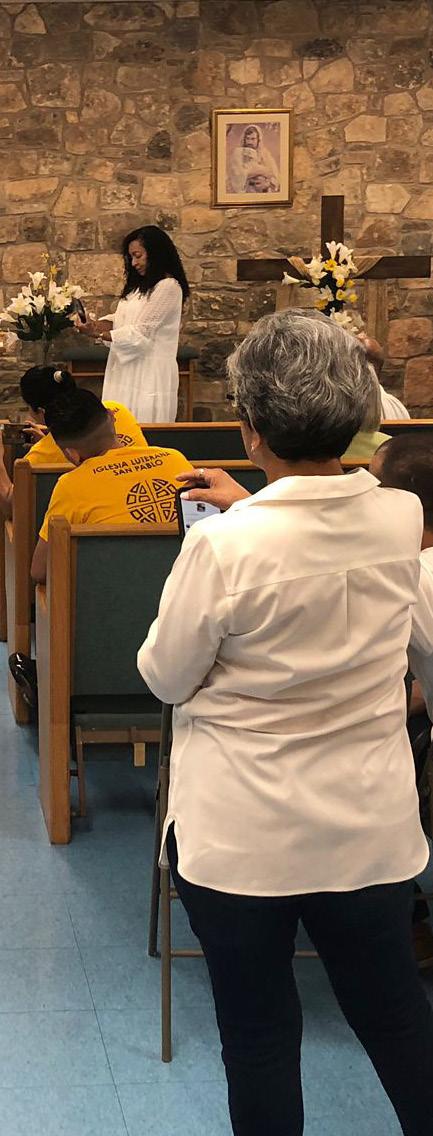
|7 ENGAGE
out, sharing its history is incredibly important. “UTSA students live, work and learn in the areas where people like this were classically oppressed,” he said. “Even if you’re not a social worker, you are a component of San Antonio’s fabric. The [Sisters of the Divine Providence] have had a huge influence in the fabric of our community.”
Moving forward, both Salinas and Reinhardt Gillis hope to not only continue to give voice to Sister Rose’s community, but to continue community connections. They both stress that for them, just as for Sister Rose, this was not a one-time discussion for the sake of a school project. They would love to maintain the contact and truly keep the history of the Sisters of the Divine Providence alive.
MY BROTHER’S KEEPER
Last summer, the Department of Public Administration worked with UP Partnership to pilot a mentoring program for young men of color transitioning from high school to UTSA or one of the Alamo Colleges. Nine UTSA students served as mentors and all students involved received $1,000 scholarships from UP Partnership.
The program, called My Brother’s Keeper (MBSKA), aims to remove systemic barriers to safety, education and career success, ensuring that boys and young men of color have a path to postsecondary success.
“Students from UTSA have exemplified youth leadership in the highest order,” said Lowell Butler, community manager at UP Partnership. “Whether through co-leading sessions at the MBKSA Youth Summit, serving as college mentors to high school seniors or as interns here at UP Partnership, students of UTSA have been indispensable leaders and pillars of our near peer strategy.”
Students involved in the program continually express that they receive more than anticipated from mentoring students – even when obstacles such as unresponsive mentees and remote learning temporarily get in the way. Mentors begin to see their own experiences as a strength that they can share to inspire others to persist and overcome challenges.
UTSA student Omar Nesbit recalled the initial difficulty in finding mentees that would commit, but once he did, the process was enlightening. “In our initial meeting, I set an agenda and
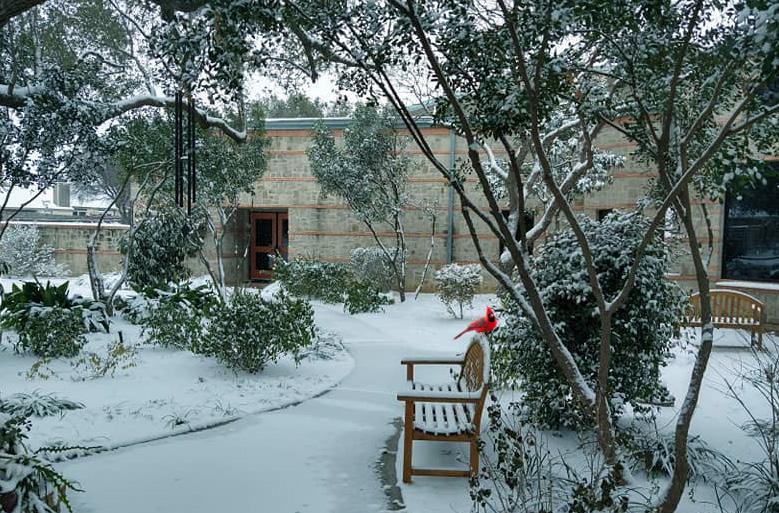
we talked in-depth about our background, experiences, aspirations, and more,” he said. “At the conclusion of the program, I was fulfilled…. by providing insight to someone unfamiliar with the mechanics of higher education.”
My Brother’s Keeper is a small part of the many collaborations UTSA has with UP Partnership. “Together [with UTSA], we've created meaningful experiences for students from our partner schools through our near peer strategy or developed strategies for countywide restorative practices,” Butler said. “We also have
Moving forward, UTSA, the Department of Public Administration and UP Partnership plan to continue the partnerships they’ve developed. In this mutually-beneficial arrangement, both UTSA students and the underserved community receive insight, breakthroughs and often lifechanging experiences.
“Relationship building with My Brother’s Keeper helped me learn that I can foster healthy, academic, and nurturing relationships with my classmates and colleagues,” said Perez. “I feel as though it prepared me to be a real-world leader.
other collaborators from UTSA involved in our Diplomás Network and joint collaboratives such as the Equitable Enrollment Collaborative (EEC).”
Senior mentor Mark Perez reflected on the connections he was able to build with his mentees – particularly the importance of mental health. “Self-awareness was key, and I wanted to create a space for them to be able to say ‘Man you know what, I'm stressed,’” Perez said. “I believe I was successful in doing so. Talking about stressors leads to creating a plan for them.”
It is pretty neat to be able to know for a fact that problems will arise in life. If we anticipate them and tackle them head on, it makes you feel like a better prepared leader.”
PROPPING UP SMALL COMMUNITIES WITH PARTNERSHIP
In another social work program project, two students conducted a needs assessment with a local community.
Students Hilda Santiago and Sarah Viles decided to work with a Christian Church community in San Antonio. Over the course
"Together [with UTSA], we've created meaningful experiences for students from our partner schools."
photo courtesy of Sister Rose Kruppa
ENGAGE 8|
of several weeks, the two conducted six one-on-one interviews and a 14-person focus group.
The needs assessment primarily asked the individuals to define their community – its history, who it serves, and how members see themselves within it. To their surprise, Santiago and Viles discovered the needs were much more than dollars and buildings.
“This community sees itself as linguistically unique,” Viles said. “This is a place of refuge for them to celebrate together. When the pandemic came about, they were losing members…so reestablishing things face to face and bringing people back physically to the church is important.”
Throughout all the interviews – and sometimes cloaked within issues such as money and resources – that theme kept coming back up. Members of this community simply wanted to be together and forge human connections.
Most of all, Santiago and Viles hoped that the project would help to empower the community members. By compiling their wants and needs, and holding discussions around solutions, the church members may be able to find a point around which they can start rebuilding.
“They have a valuable resource – human connection,” Santiago said. “This can be harnessed into taking action and positive change. We ourselves are capable of fulfilling our needs with the assets we already have.”
Some weeks after the initial project was wrapped up, Santiago and Viles are on the cusp of completing an additional project with the same community.
The duo will implement a four-week workshop that explores how the community defines mutual aid and collaboration and how they envision doing work together. The series will prioritize the use of dialogue and personal experience as teaching methods and the workshop material has been curated for cultural relevance, accessibility and applicability.
“For our class assignment, we only needed to submit the project idea,” Santiago said. “I intend to actually implement the workshop with the congregation, and just this week proposed the idea to the church council and got approval to do so.”
The pair’s commitment to the community demonstrates the lasting effects this type of classroom work can make in the larger community of San Antonio.
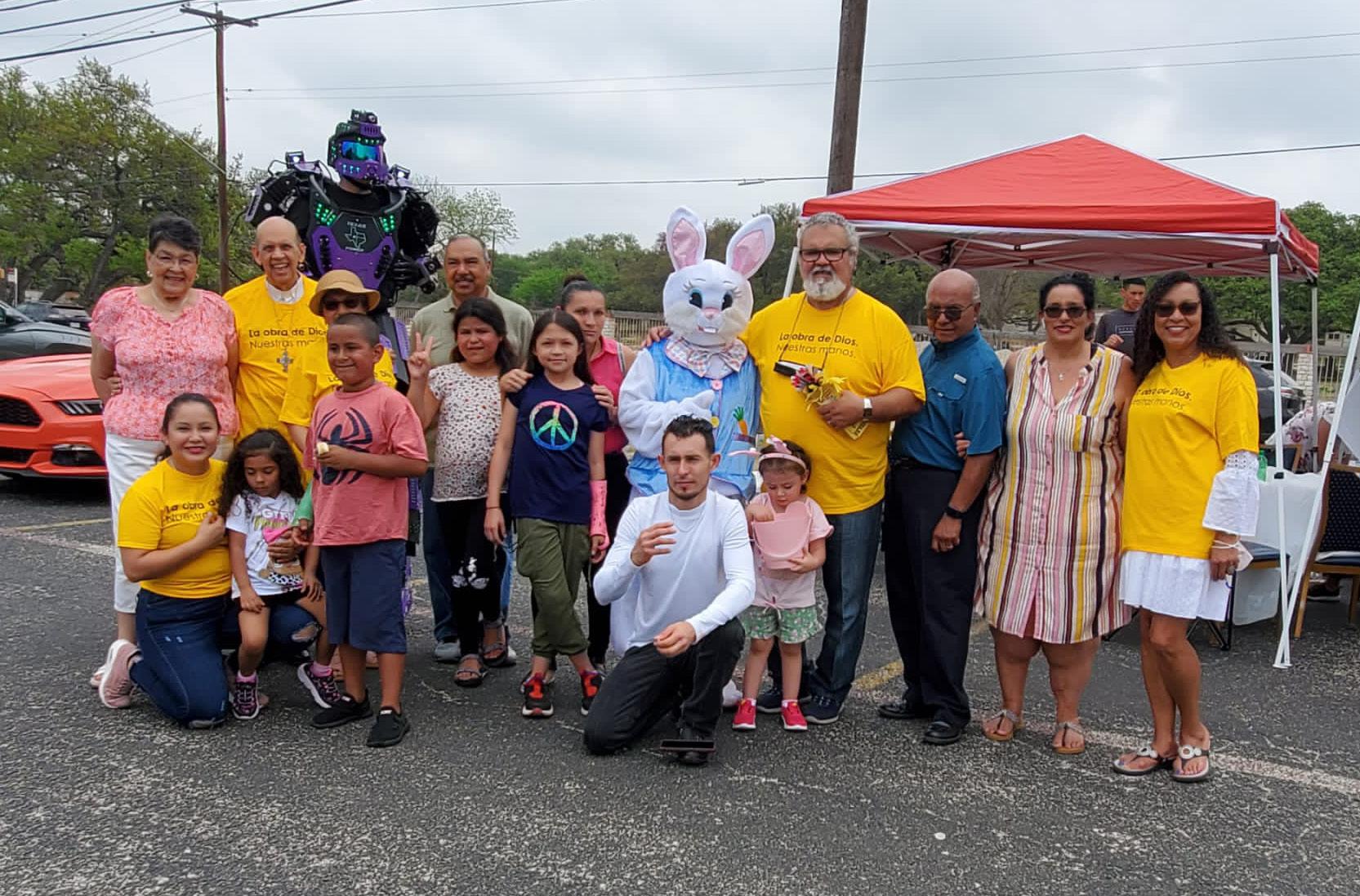 –Amanda Cerreto
–Amanda Cerreto
A new home for students
Earlier this year, HCAP opened the doors to a brand new Student Success Center. Equipped with computer nooks, whiteboards, a conference room and study and dining booths, this is a place for students to study, network and learn about college-wide events and offerings.
“This is a thrilling time for our students and the College for Health, Community and Policy,” said Lisa Johns, director of the Center. “We encourage all HCAP undergraduates to utilize the Student Success Center for individual and collaborative work, attend the workshops we offer and meet with an HCAP Peer Mentor. We want students to feel comfortable and welcome in the Center so they will ask questions when they need assistance. We are here to connect them to our resources and those in our surrounding communities. Our team is dedicated to our students’ success!”
The HCAP Student Success Center focuses on both college preparation and career readiness. It will serve as a home base for students and faculty to connect and work together toward the goal of student success.
At its grand opening in March, students filtered in to enjoy food and check out the space, which includes computer spaces, a conference room, cozy booths and more.
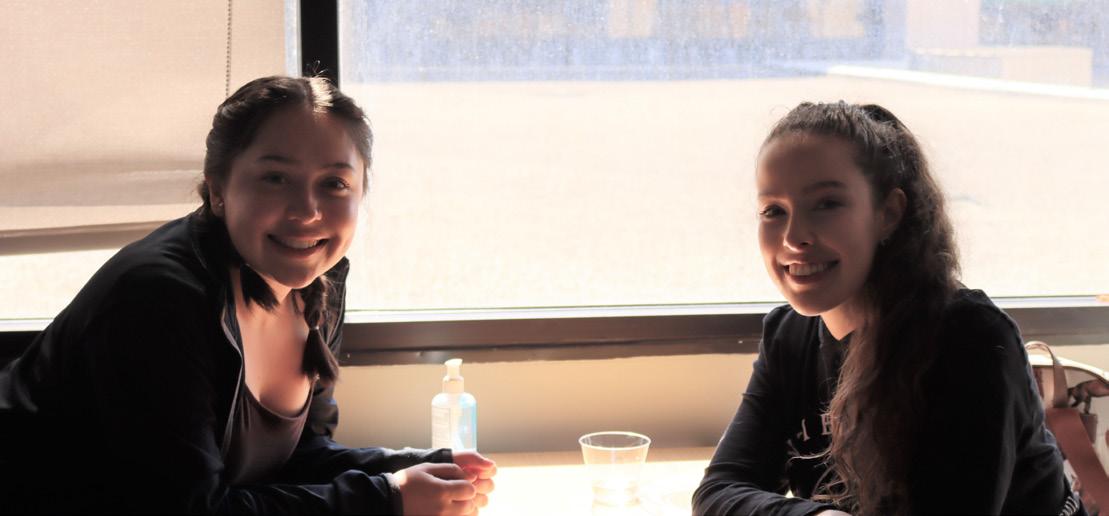
“We are thrilled to be able to open the doors to the HCAP Student Success Center,” said Dean Lynne Cossman. “We have been anxious not only to complete the renovations, but also to be back in person so that students can use the space. The HCAP SSC will be the center of student support for the college and we’re pleased to have Lisa Johns and Heather Frazer directing the programing under Dr. Alberto Cordova’s tutelage.”
The Center offers tutoring services, peer mentoring, workshops, academic coaching and more. Its mission is to enhance the university experience of HCAP students through programming and services that promote academic readiness, professional development and leadership, civic engagement and research.
As the college works toward its mission of improving the well-being of our community, the Center will prepare students to engage with their communities – particularly the City of San Antonio – through internships and other means.
9
| ENGAGE
A click away from dropping out
As an incoming student to the University of Texas at San Antonio in 2020, Deniff Lara’s first year of college was nothing like she imagined.
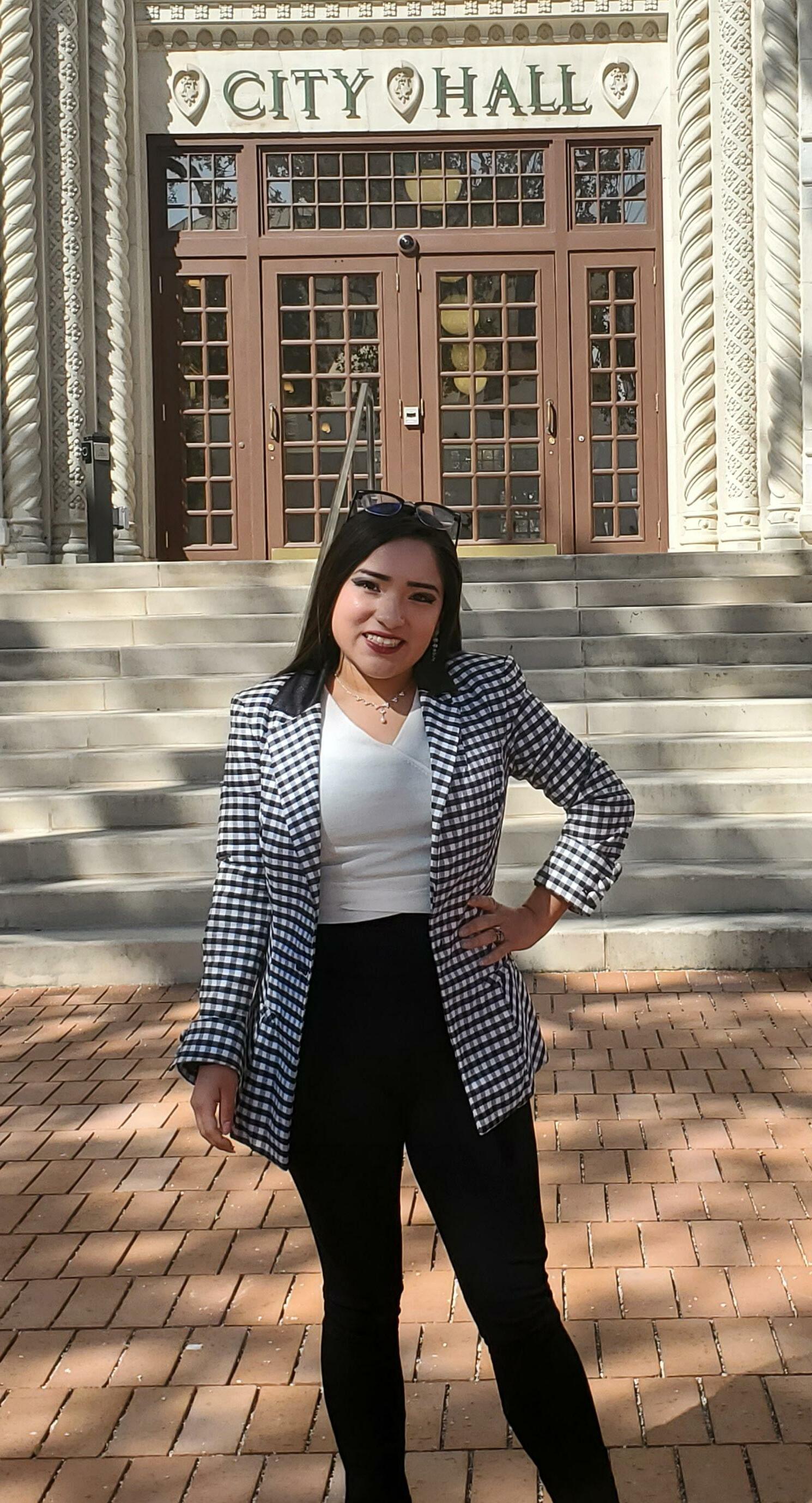
Lara was ready to learn how to jump into university life and all things UTSA – as a first-generation student, she felt like there was so much waiting to be discovered. But then the country remained at a standstill as the Coronavirus pandemic raged. The shift to online learning was difficult, to say the least.
“I never imagined my college years would look anything like this,” Lara said. “Last year was one of the hardest years of my life.”
Lara continued to struggle throughout the fall and spring semesters with feelings of isolation and grief, as family members and friends passed away, while her schoolwork mounted. She felt as if she didn’t know where to turn. She was a click away from dropping out when she discovered UTSA's TRiO Student Support Services.
Student Support Services (SSS) is a TRiO program that provides opportunities for academic development, assists students with basic college requirements and motivates students to successfully complete their postsecondary education. The goal of SSS is to increase the college retention and graduation rates of its participants. For Lara, that goal was reached.
“Deniff and I frequently met to intentionally map out strategies that prioritized her mental and emotional health so that she could thrive academically and socially,” said Jaz Burgess, student development specialist. “Over time, she put into practice many of the concepts from our discussions and made the decision to maximize her life.”
Slowly but surely, Lara began to find her footing. It was a transformation she credits partially to TRiO. “They gave me a reason to continue, because they believed in me,” she said. “The fact that I knew that someone believed in me really made a difference. That was the main reason why I didn’t drop out – because I knew someone was counting on me to be the best I could be.”
Armed with a renewed sense of vigor, Lara jumped back into university life and decided to try everything she could. She took classes in architecture, career planning and more.
“When I found Sociology, I fell completely in love with it,” she said. “It just made sense to me. It’s the way I see the world.”
Now a student enrolled in the College for Health, Community and Policy, Lara wouldn’t stop there. Inspired to create change from societal structures, down to individuals, she added a second major in public administration and policy. “How can I help the most amount of people?” she asked. “Public administration is my continuation of trying to serve people at a higher level.”
Lara thrives on social interaction and meeting people – a true sociology major – so despite the pandemic, she still managed to join several student organizations. From campus ministries such as CRU and Chi Alpha, to the lighthearted “bubble believers,” she integrated herself into several facets of campus life.
Deniff Lara
ENGAGE 10|
“My faith resonated with me a lot through the struggles I endured,” she said. “Without knowing that I still had a purpose in life, I would have been blind to most of the opportunities ahead of me. But by seeing people invest that kindness and love in me, I truly was able to give back and reflect my potential in an exponential way.”
Now with campus operations back to normal, Lara’s commitments have multiplied. She currently serves as one of the representatives for the President’s Student Advisory Council, and Student Services Fee Committee, representing HCAP students and bringing their issues to administration.
“I simply asked a lot of questions. I kept applying myself and trying everything, even when I knew I could fail,” Lara says. “I still have a lot to learn and discover, but I will continue to try it all.”
The “keep at it” attitude has also enabled Lara to earn opportunities outside of UTSA. She is currently serving the Mayor of San Antonio’s office as the assistant intern for Chief of Staff.
Lara emphasized that her lack of experience wouldn’t hold her back, and she encourages other students to grasp every opportunity, even if they don’t feel ready. “How can you have a chance if you don’t try?” she asked.
The internship at the mayor’s office is a highlight of her time so far at UTSA. “It’s been one of the most amazing experiences I have ever had,” Lara said. “It’s a very healthy environment where not only can I learn, but I can actually grow as a person and as a student. It has also challenged me in ways that I’ve never been challenged before, allowing me to pursue my biggest dream to give back to my community. Because by caring for people, you can never be the same.”
Looking back on the immense changes that have happened in such a short amount of time, Lara is decidedly grateful that she didn’t take another path. “It’s easy to stop when you’re struggling,” she said. “At that point in time, dropping out seemed like the right thing to do. I wouldn’t have blamed myself for going through with it. But now I know that persistence and resilience really does pay off. Better things are yet to be seen along the way in the future.”
–Amanda Cerreto
A surprising double major
A cornerstone of the College for Health, Community and Policy (HCAP) is that it brings together nine disciplines that not only relate to each other, but inform each other.
Ariadna Garcia’s education within HCAP proves just that. Although she never planned on double majoring, the senior is prepared to graduate with degrees in Criminology & Criminal Justice and Psychology – and has plans to pursue a career in social work.
Although she initially chose to minor in criminal justice, with plans to pursue forensic psychology, her trajectory changed as she began taking more classes.
This change of direction isn’t uncommon among UTSA students – with professors who are experts in their field, students often discover areas that they didn’t know existed. For Garcia, that area wasn’t even in her major.
“I’d like to pursue my master’s in social work after gaining some experience in the workforce,” Garcia said. “My internship was a big part of that decision.”
Garcia currently interns with the Texas Department of Juvenile Justice. In addition to attending meetings and shadowing parole officers, she has a major role in helping youth with the re-entry process.
“I mentor youths within the system,” Garcia says. “I find resources to help them re-enter society, to aid the halfway houses with getting them prepared for reentry into society.”
Mentoring is second nature to Garcia, who has served as a peer mentor since her second year at UTSA. In University Peer Mentorship, first-year students connect with a peer mentor in their same Academic Studies and meet three times throughout the semester. During these meetings, peer mentors guide students through topics that are crucial to being successful academically and socially at UTSA.
“When I was in the program as a freshman, I was really inspired by my own peer mentor,” Garcia said. “I thought becoming a mentor would be a good way for me to give back to UTSA.”
Garcia is now a senior peer mentor and says that the experience has been the best during her four years at UTSA. “I think that as much as I share with my mentees and teach them, I also learn from them,” she said. “As a senior peer mentor, being more involved in the program has helped me learn a lot that I wouldn’t have if I had just stayed a regular peer mentor.”
Garcia draws on her own experiences at UTSA to encourage her students. “I like to share my path with my mentees and make it clear that even if you’re doing one thing that you might not think is related to another, it can still be incredibly helpful and relative to what you want to do in the future,” she said.

Garcia is grateful for every class that helped her build the foundation toward her career plans, and encourages other students to put in the work in order to find their own dreams. “Try as hard as you can,” she said. “Don’t be too harsh on yourself. Sometimes, you’re not going to get everything you want. But as long as you’re working hard, and giving it your all, that’s what really matters.”
–Amanda Cerreto
Ariadna Garcia
|11 ENGAGE Student Stories
Accidental philanthropy
So often when leaders and executives talk about their career paths, they’ll talk about grasping opportunities, making connections and keeping a fierce eye on the end goal. But for some, it comes naturally as a result of following passions, learning about people and taking a genuine interest in improving the lives of others.
Current Master of Public Administration student Rachell Hathaway is one of the latter. After building an incredibly successful career from the ground up, she wasn’t ready to stop learning or stop challenging herself to do more. As a result, she “happens to be,” (as she puts it) in several leadership positions, including a recent election to the Board of the San Antonio Housing Trust.
Hathaway built a successful career at Bank of America, working her way up to Vice President, Community Relations Manager before retiring. Now, Hathaway serves as a Program Manager for the Kronkosky Charitable Foundation.
The Foundation supports programs, projects and collaborative efforts to reach as many people as possible in Bexar, Bandera, Comal and Kendall counties. As someone who benefited from social service programs as a child, Hathaway is keen to ensure others can also benefit from them in the future.
One might think that philanthropy is in her blood; that her career path toward charitable giving was linear and intentional. While it appears that way, Hathaway is quick to point out that it was relationships and conversations that brought her to these places – not a master plan she had in mind.
In fact, it was an inspirational conversation with her daughter that led her to UTSA to pursue an MPA..
“My daughter was about to graduate from college and thinking of her next steps, which made me think of mine,” Hathaway said. She looked at a few programs, but saw that the courses at UTSA spoke to the work she wanted to do.
“I’d already been doing this kind of work,” Hathaway said. “The MPA program seemed like it would help me do my job more effectively by having more knowledge around how all the pieces come together.”
The question, “how can I do better?” is one that Hathaway asks herself often. It is this mindset that has opened so many doors to her, professionally and personally, and makes her a leader in her community. It is what brought her to the MPA program, and what has continued to provide her with opportunities to serve her city.
Most recently, Hathaway was elected to the Board of the San Antonio Housing Trust. As one of six new members, she will join five city council members and one city staff advisory member to help provide opportunities to support affordable housing projects, program and initiatives.
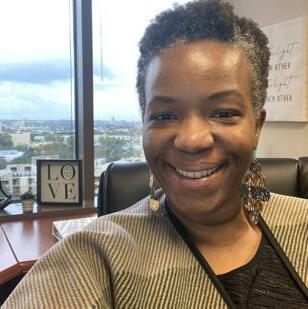
It was another one of those moments for Hathaway that just “fell into place.” Hathaway’s passion for affordable housing developed several years
ago, before knowing about a Housing Trust or any kind of governmental positions around it.
“I was a beneficiary of the Section 8 program some time ago, and it made a huge difference in my life,” Hathaway said. Because of that, Hathaway was able to go back to school, earn her degree, and work her way up in Bank of America. It was there she learned about the Community Reinvestment Act, how social inequity was built into the fabric of housing, and more –and once again, she asked herself: “How can I do better?”
“It’s really fueled my passion to say, ‘How can I learn about affordable housing in a way that I can be a force for my city?’” Hathaway said. And so, she began researching, finding connections, and learning about the things that moved her. Hathaway leapt at the opportunity to earn a graduate certificate in urban and regional planning to complement her MPA.
When she learned of the vacancies on the Housing Trust board, she knew it was her time. “It was quite organic; I was simply preparing myself for the opportunity years ago when I started the MPA program,” Hathaway said. “I’m really excited to be able to serve my city. I’m a little girl who grew up on the east side, went to public schools, it feels good to now have a correlation of some of the services that I’ve benefited from here in San Antonio. And to be a voice against anything that is not inclusive.”
As excited as she is to serve on the board of the Housing Trust, this is far from Hathaway’s first experience with meaningful volunteer work. She is also a board member for LISC San Antonio, a national nonprofit that provides financing and support for community development across the country, and has served as a member of the board of directors for the San Antonio African American Community Archive & Museum; a member of the summer internship committee for San Antonio Works; and a fundraiser for the Boys & Girls Clubs of San Antonio.
Hathaway maintains that her experiences came from inspirational conversation and following her interests. “Every great thing that we see has been developed from the ground up because of a conversation,” she said.
Once she earns her MPA, she plans to continue her philanthropy, fueled by a passion to give back to the city that has given so much to her.
“I want to be an advocate for a continuation of progress for everybody that is either experiencing generational poverty or mental health issues, lack of affordable housing, all of these things that we experience and go through, and get people to see that it’s really all of us,” Hathaway said. “One ship can really help lift the tide. I’m hoping to be a bridge builder for the space that I’m in as well as the spaces that I’ve been in.”
–Amanda Cerreto
Rachell Hathaway
ENGAGE 12|
Creating new fellowships
Samson Olowolaju, a doctoral student in Applied Demography, is the inaugural recipient of a fellowship from Methodist Healthcare Ministries of South Texas.
The Health Equity Fellowship, established in 2021, awards $25,000 to a graduate student in the College for Health, Community and Policy (HCAP) to support research in areas such as social determinants of health, vulnerable populations frameworks, health equity, population health, data driven innovations, philanthropy, rural populations, poverty and more.
“We are thrilled to have Methodist Healthcare Ministries as a pivotal partner for the college,” said Lynne Cossman, dean of the College for Health, Community and Policy. “Especially considering the challenges of the last year, we are grateful for our partnership and how well our missions complement each other. CEO Jaime Wesolowski’s representation on the HCAP Advisory Council is important in effecting change with community-wide collaborations.”
Olowolaju earned his BS in demography and social statistics at Obafemi Awolowo University in Nigeria, and attended Texas A&M University for his Master of Public Health. He is anticipated to complete his Ph.D. in Applied Demography in 2023. He chose UTSA because it had the most robust courses offered for his interests. “I was so thrilled, because it was so rich in the methodology and I love to learn all of that,” he said.
Together with his mentor, Associate Professor Corey Sparks, Olowolaju is focusing on researching maternal mortality. It was Sparks who nominated Olowolaju for the fellowship.
“Samson was a natural choice, as his career goal is to work for an agency like Methodist Healthcare Ministries, where he can help translate data into real world decisions and health policies to promote equity,” said Sparks. “We are very honored that Methodist Healthcare Ministries has sponsored this fellowship. It is a fantastic way to connect our applied demography students with an agency who’s focus is on health equity and access. Samson was selected because his research on maternal mortality is extremely policy relevant and is a health outcome that we know can be affected by better healthcare policy decisions.”
Olowolaju is honored to receive the fellowship and hopes it will help propel his research to the next level. “If there is funding, then you can focus and put all of your attention into the research you’re doing,” he said.
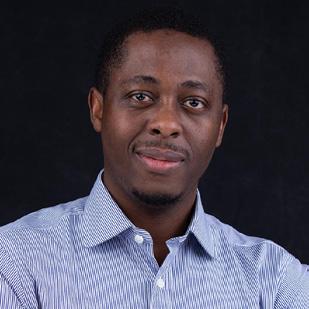
Methodist Healthcare Ministries of South Texas is a private, faith-based, not-for-profit organization dedicated to creating access to health care for uninsured and low-income families through direct services, community partnerships and strategic grant-making in 74 counties across South Texas. This new partnership with UTSA will help their mission to empower the voices of the community.
“As we continue to implement a new strategic plan and endeavor in the spheres of resilient families and thriving communities, it becomes essential for our organization to continually refresh its knowledge of the latest applied and peer reviewed research,” said Chance Kinnison, senior research and evaluation manager at Methodist Healthcare Ministries. “The establishment of this research fellowship is one way to ensure we have a regular consultation with the academic community and enables us to solicit additional guidance for what are the most important and useful frameworks and innovations that can lead to a reduction in health disparities.”
After completing the fellowship and his doctoral degree, Olowolaju plans to find employment in a research institute and try to put himself in a position where his research can positively impact the community.
“Samson will acquire valuable experience to add to the resume, can continue forming his own research agenda, and, moreover, gain exposure to the health care and philanthropic landscape,” said Kinnison. “We are confident that the Methodist Healthcare Ministries Health Equity Fellowship will produce future leaders for the community and inspire talented individuals to propel themselves into careers that multiply the impact of our work lifting up resilient families and thriving communities.”
–Amanda Cerreto
Samson Olowolaju
|13 ENGAGE Student Stories
HCAP in the city
Since its inception in 2020, the College for Health, Community and Policy’s mission has been to improve the well-being of San Antonio and communities around the world. In order to do this, its researchers must work hand-in-hand with city leaders and residents to develop effective, lasting solutions to complex issues such as health disparities, health literacy, crime rates, policymaking and more.
In addition to the college mission, Dean Lynne Cossman set forth an ambitious Signature Project for 2022: infusing community engagement through every aspect of the college. A large part of this community engagement includes faculty research.
Dean Cossman assembled workgroups composed of faculty and staff to increase the visibility, recognition and sustainability of communityengaged work within HCAP, UTSA and the San Antonio community.
“Our 2021-22 Signature Project was focused on community engagement and making sure it was a part of all aspects of our work: teaching, research and service,” said Cossman. “Community engagement is the bridge that brings our work to the community and brings the community into our work – it is a bidirectional relationship, working with the community to make sure our research is appropriate and resulting in relevant solutions.”
Heading up all the workgroups is Faculty Fellow Emily Nicklett, associate professor of social work.
“As Faculty Fellow, it has been my honor to help facilitate the work of community partners, staff and faculty to formalize and further strengthen UTSA’s already strong ties to the community through research, teaching and service,” said Nicklett. “I am proud to be a member of HCAP, as it truly is centered around community well-being.”
The workgroups have accomplished both internal and external goals: they have created review standards for promotion, developed a structure for an annual event to support research partnerships, organized several collaborative events and more.
Faculty have embraced the challenge set forth by the university and Dean Cossman and have spent the last two years – even amidst a pandemic –working with city employees and residents to learn about their unique challenges and to work together to develop lasting solutions. While there
ENGAGE 14|
are many more examples, the below stories highlight some of the areas in which HCAP works.
HEALTH LITERACY GRANT AIMS TO COMBAT COVID MISINFORMATION
The U.S. Department of Health and Human Services (HHS) Office of Minority Health awarded the City of San Antonio a $4 million health literacy grant to assist the city in its efforts to improve health literacy related to COVID-19 among minority and underserved San Antonio and Bexar County residents.

San Antonio and Dallas County are the only two Texas local governments awarded this grant.
Researchers from UTSA assembled a team that will work with UT Health and Metro Health to collect data, conduct research and improve health literacy.
The UTSA team, led by Associate Professor of Public Health and Associate Dean for Research Erica Sosa, consists of Professor of public
health Meizi He, Professor of demography Rogelio Sáenz and Associate Professor of public health Jeffrey Howard. The team is taking the lead in evaluation and quality improvement for the overall project. They identified 22 target zip codes at high risk of COVID-19 and in underserved areas in which to focus programmatic efforts. The team oversees the data collection and will report the effects of the COVID-19 intervention efforts.
“We hope to see that community members have increased access to scientifically accurate and culturally appropriate health information related to COVID-19,” Sosa said. “We also hope to see improvements in communication overall between community members, healthcare providers and the research community.”
To reach these goals, the UTSA team is working with community health workers to disseminate health messages that are accessible and accepted by the local community. They are conducting surveys and focus groups to help guide program activities and measure the impact they have toward those goals.
Sosa has a long history of working with Metro Health, and when the collaboration was proposed, she assembled a team to build on the college’s multi-disciplinary strengths. Sosa’s primary areas of research include examining structural, cultural and psychosocial contributors to the onset of diabetes and obesity among minority populations and Latino health issues. He, also a public health professor, specializes in community nutrition and health promotion. Sáenz’s primary research interests include demographic trends, inequality, and social justice. Rounding out the team, Howard’s research foci are on traumatic injury epidemiology, mass casualty epidemiology, accelerated aging and veterans health. This dynamic team can tackle all areas of focus for this project.
“There is a lot of misinformation about there about COVID-19,” Sosa said. “By improving access to trustworthy and culturally appropriate information, we expect increases in vaccinations, testing and contact tracing.”
|15 ENGAGE
While the team aims to combat misinformation about COVID-19, they don’t want their work to end there. “If this equips community members with the skills and trust to seek out, evaluate and use health information, we will be in a great position for other health-related issues postpandemic as well,” Sosa said.
REGIONAL COLLABORATION HELPS YOUTH WITH EXPERIENCES OF FOSTER CARE ATTEND COLLEGE
In 2019, an innovative county-wide collaboration was developed between UTSA, Texas A&M University – San Antonio, the Alamo Colleges District (ACD), Bexar County Children’s Court and Child Advocates San Antonio (CASA). This pilot program aimed to increase the number of youth in foster care to attend – and succeed in – college.
The pilot project – Bexar County Fostering Educational Success (BCFES) – was initially funded by a $3.5M appropriation from the 2019 Texas legislature, made possible through the sponsorship of State Senators Pete Flores (R) and José Menéndez (D), and State Representatives Trey Martinez Fischer and Ina Minjarez. It earned renewed funding in 2021 for its outstanding success.
HCAP’s Megan Piel, assistant professor of social work, is the project’s lead research evaluator. “In
addition to examining traditional indicators of student success, we are conducting communityengaged research on the pipeline of educational support for students who have experienced foster care,” Piel said.
Department of Social Work alumni Cindy Alvarado ’07 and Deaven Rodriguez ’20 serve as research coordinators for the project, coordinating program data from all BCFES community partners, collecting institutional data on student success indicators, and
students with a history of foster care in academic programs across the university. By 2022, an additional 104 students with a history of foster care enrolled as freshmen or transfer students.
As BCFES gained momentum in removing barriers to educational success, it became apparent that housing stability was a critical need. Piel collaborated with BCFES partners to develop a $1.2M proposal, awarded through the U.S. Department of Housing and Urban Development, establishing the BCFES Housing First Project in Fall 2020. With BCFES as the umbrella, the rapid-rehousing program is addressing housing stability for 33 young adults experiencing homelessness, as well as 17 dependent children housed with their mothers or fathers or pending reunification.
facilitating collaboration with the UTSA Urban Education Institute and Texas Education Research Center to examine longitudinal predictors of educational success.
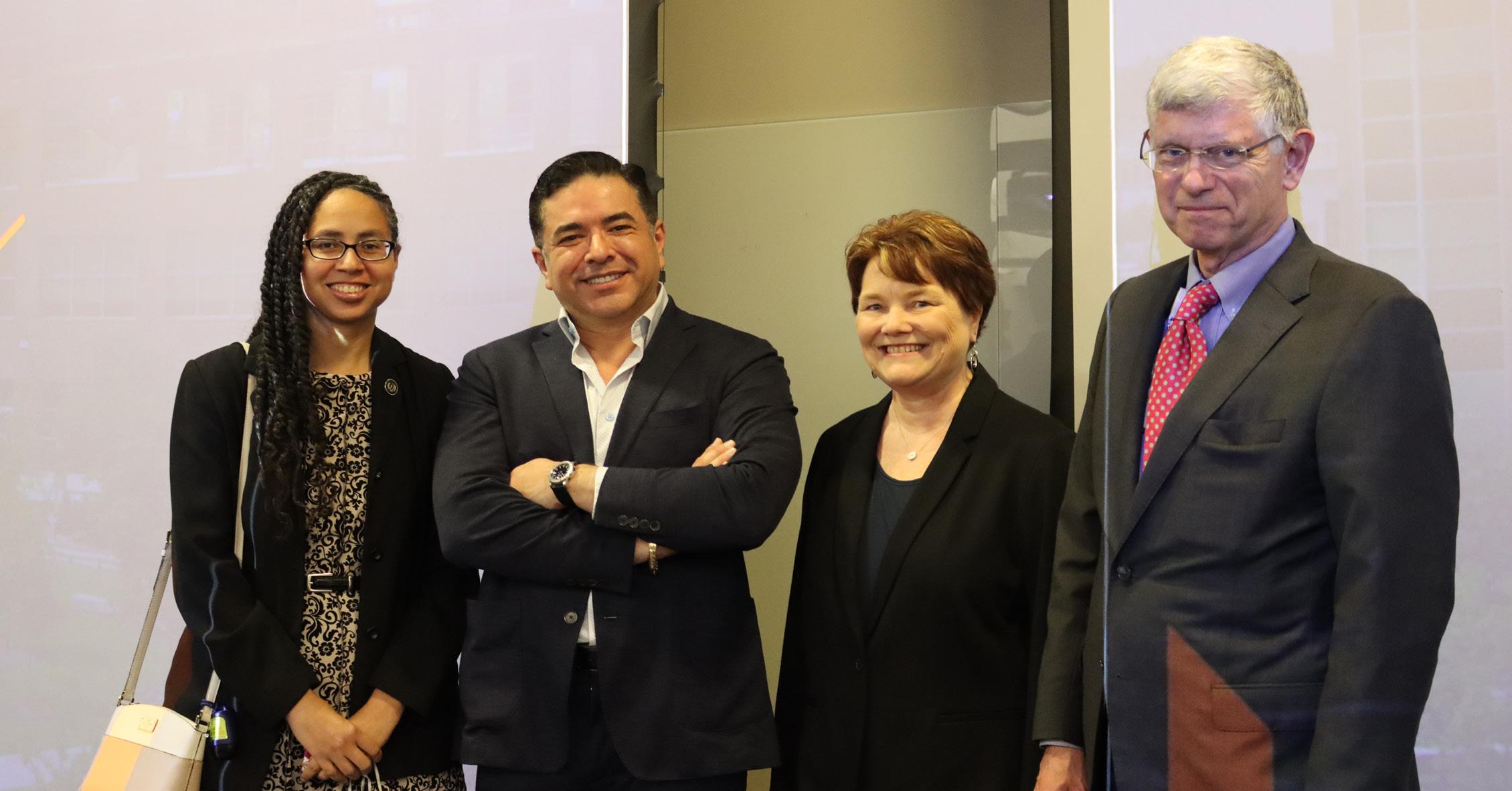
The program saw early success; prior to starting, UTSA was enrolling approximately 125
“This collaborative effort to address youth and young adult homelessness will have a collective impact on our community and improve outcomes by addressing a critical housing need that influences educational and long-term success,” Piel said. “In addition to serving as a model for other communities, this project addresses a significant gap in research with youth and young adult experiences of homelessness and transitions to postsecondary education for students with a history of foster care.”
Left to right: Commissioner Rebeca Clay-Flores, Dr. Esteban Lopez, Dean Lynne Cossman, and Dr. Ian Thompson
ENGAGE 16|
The innovative rapid-rehousing model includes peer advocacy, supportive case management, assistance with moving costs, rent and utility deposits, child care, mental health services, legal services and life skill development, in addition to the strong focus on educational support and degree completion. The South Alamo Regional Alliance for the Homeless, San Antonio Bar Association, Jewish Family Service and Thrive Youth Center are additional partners providing supportive services for the Housing First Project.
“We are thrilled that UTSA and the Bexar County Fostering Educational Success Pilot Project are leading this collaborative effort. Housing is a critical need for so many students with a history of foster care, and this program will provide the holistic support they need to pursue their dreams of a higher education,” said Taylor and Peggy Eighmy, president and first lady of UTSA, in a joint statement.
"I believe public universities can be catalysts for change and have an important role to play in helping foster alumni reach their highest potential, that universities can best do so, by providing individualized, trauma informed and strength-based support on their campuses, and that public universities must engage and work with child welfare agencies, children’s courts, K-12 school systems and non-profits long before these young people reach our campuses,” Peggy Eighmy said. “I am so proud that UTSA is doing exactly that. "
R&D LEAGUE PARTNERS DEEPEN COMMITMENT TO HELP COMMUNITY
In January of 2020, as HCAP was developing, a separate new research and development program for the city was also being created.
The City of San Antonio (CoSA), Southwest Research Institute (SwRI), the United Services Automobile Association (USAA) and The University of Texas at San Antonio (UTSA) aligned efforts to form the R&D League.
The aim of the R&D League is to create cross-sector, multi-disciplinary teams that use scientific methods and data to investigate new idea, facilitate evidence-based policymaking and explore the frontier of innovation.
Several teams and departments within UTSA collaborate with the R&D League in various ways. The College for Health, Community and Policy has major stakes in the League.
HCAP’s Julia Wolf, postdoctoral fellow, serves as an R&D League Fellow and a liaison between
the researchers of HCAP and the League. Her main project thus far with the League has been the CoSA R&D League Rapid Call program.
The Rapid Call program is a funding opportunity sponsored by the R&D League to enhance greater scientific collaboration between UTSA and CoSA. CoSA department employees laid out six specific challenges for researchers to investigate to enhance city services – from updating the 311 satisfaction survey, to creating toolkits for census data use, to investigating the influence of the digital divide on the Municipal Court’s service delivery and more.
Along with her colleagues at the R&D League, Wolf summarized the six challenges and sent a call for proposals to UTSA faculty with the help of Ana Laredo, engagement manager in the UTSA Office of Strategic Research Development. Wolf, along with Kate Kinnison (R&D administrator at the CoSA Office of Innovation), Jenna Wallace (R&D coordinator
Survey Design and Delivery Strategy.” They will be working with CoSA 311 City Services & Info.
PI: Lloyd Potter, professor & director, Institute for Demographic and Socioeconomic Research (IDSER), Texas State Demographer, Co-PI: Po-Chun Huang, IDSER senior research associate, and Co-PI: Jeffrey A. Jordan, IDSER senior research associate for their project titled: “Simplified Guide for Planning and Conducting Surveys for COSA Staff Members.” They will be working with the CoSA Department of Human Services and the CoSA Communications and Engagement Department.
PI: Richard Hartley, department chair and professor, Department of Criminology & Criminal Justice and Co-PI: Branco Ponomariov, associate professor, Department of Public Administration for their project titled: “Optimizing Service Delivery at the CoSA Municipal Court.” They will be working with the CoSA Municipal Court.
at the CoSA Office of Innovation), the CoSA employees who administered the challenges, and a seed grant review committee comprised of UTSA leadership versed in the CoSA urban challenges then reviewed the proposals and the R&D League awarded grants to those qualifying.
“I’m so grateful for the opportunity to work with the R&D League while being a postdoc for HCAP,” Wolf said. “It’s a unique and constructive position that brings together great minds focused on finding innovative solutions to city challenges and residents’ needs.”
Congratulations to the following awardees:
PI: Wenbo Wu, Graham Weston endowed associate professor, Department of Management Science & Statistics, Co-PI: Pamela Smith, Bodenstedt Chair professor, Department of Accounting, and Co-PI: Ying Huang, assistant professor, Department of Demography for their project titled: “Increasing 311 Satisfaction Survey Participation Rate Through An Improved
PI: David Han, associate professor, Department of Management Science and Statistics for his project titled: “Development of Automated Data Consolidation Tool and Evaluation of Public Perception for the Affordable Housing Dashboard.” He will be working with the CoSA Neighborhood & Housing Services Department. DEAN’S COMMUNITY LECTURE SERIES
HCAP’s Director of Development, Lisa Hernandez, joined the college in 2021. She immediately dove into setting up a lecture series aimed at inviting city leaders to campus to discuss important, timely events. All lectures in the series fall within one or more disciplines within the the college: criminology and criminal justice, demography, kinesiology, nutrition and dietetics, psychology, public administration, public health, social work and sociology.
“HCAP’s signature event has made strides to provide an opportunity for our students,
"... you also all have to work together to make it an easy system for the people that need help."
|17 ENGAGE
alumni and community stakeholders to gather and learn how they can be agents of change,” Hernandez said. “In the fall and spring, we will focus on featuring local leaders who offer diverse perspectives for the university. We are proud of our accomplishments, but have many more areas to explore.”
Although the pandemic forced the first few events to remain virtual, the first in-person event was a direct collaboration with the R&D League: “Evidence-based policymaking: what’s all the buzz about?”
UTSA President Taylor Eighmy welcomed San Antonio Mayor Ron Nirenberg, CEO of SwRI Adam Hamilton and Brown University’s David Yokum to the Downtown campus to talk about research and policymaking in San Antonio. All members of the panel are also R&D League partners.
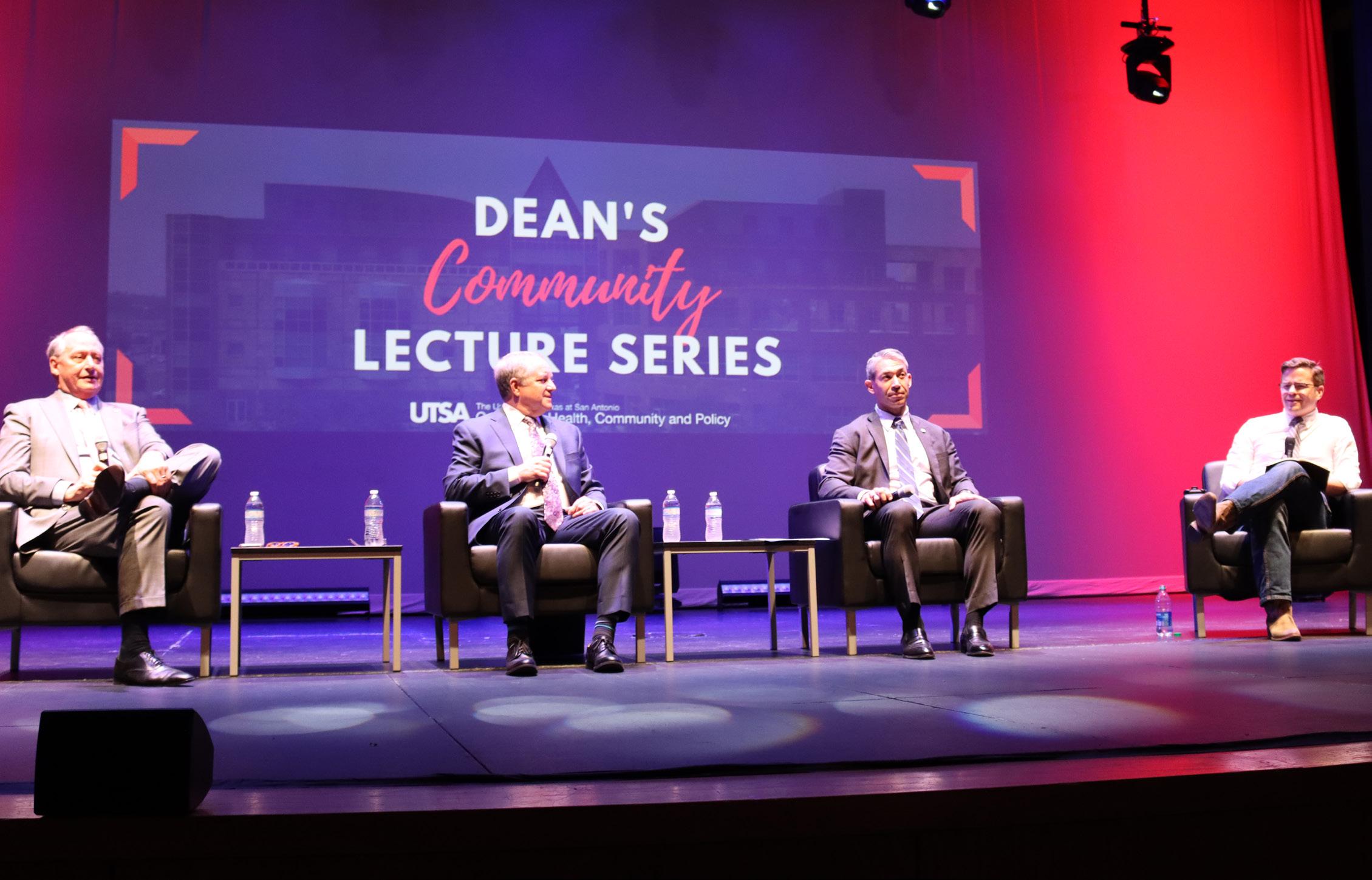
The discussion focused heavily on creating policies based on research outcomes, and all speakers stressed the importance of having
a strong research team for any and all issues that a city faces in order to make the most informed decisions.
Other lecture series topics included policing with the community, leading causes of health
For more information on the Series, or to suggest a topic, email Lisa Hernandez at lisa. hernandez2@utsa.edu
As HCAP continues to grow and the city opens up post-pandemic, the college anticipates
disparities, and policymaking and leadership during times of conflict.
For each event, distinguished community members discussed relevant and engaging topics and held an interactive Q&A with audience members. Students, faculty, staff and San Antonio citizens came out to the events for an opportunity to engage with the leaders of the community.
strengthening existing research partnerships and creating new ones. In doing so, it is fulfilling its mission to remain cognizant of its citizens needs and desires, and to work with community members and city departments and offices to solve problems and enhance the quality of life for the rapidly growing city of San Antonio.
–Amanda Cerreto & Milady Nazir
"We are proud of our accomplishments, but have many more areas to explore."
ENGAGE 18|
Tackling crime reduction
While violent crime is rising in many American cities, it is decreasing in Dallas, coinciding with the introduction of the Dallas Violent Crime Reduction Plan. The plan was developed by criminology and criminal justice professors Michael Smith and Rob Tillyer and the Dallas Police Department (DPD).
The plan is set out in three phases: phase one has been in effect for nearly a year, phase two launched in the spring, and the third is planned for later this year. The results so far are impressive:

• Violent street crime decreased more than 50% in the targeted hot spots since the plan’s inception
• Arrests for serious violent crimes and violencerelated calls were also down by more than 50% and 15% respectively in the targeted hot spots, resulting in fewer arrests for violence and reduced calls to the police for violencerelated concerns
• Violent street crime declined by about 15% in 2021 after the Crime Plan went into effect compared to 2020
“I think we expected that crime would go down in the targeted hot spot grids,” said Smith, “because there’s 25 years of research to show that hot spot policing works when done appropriately. The most encouraging part of this is that arrests declined as well.”
The decline in arrests illustrates that crime reduction was not brought on by over-policing, but rather a more targeted, methodical approach.
“The plan is purposely designed to not be the ‘90s style, stop and frisk over-policing,” Smith added.
So how is crime going down? The simple, yet powerfully effective, concept of visibility. Smith and Tillyer worked with DPD to identify crime
Left to right: Michael Smith, Lynne Cossman, Rob Tillyer
|19 ENGAGE
Violent Crime Summary
Non-Treatment/Catchment
Treatment
Catchment
Treatment Grids Only
Offender
High
Pre-Intervention
Post-Intervention Percent ( Jun 1 - Aug 31, 2021) (Sep 1 - Nov 29, 2021) Change
Total Ave. Per Total Ave. Per Incidents week (N=13) Incidents week (N=13)
City-Wide 1,780 136.9 1,536 118.2 -13.7%
1,488 114.5 1,311 100.8 -11.9%
9.5 58 4.5 -52.8%
13.0 167 12.8 -1.2%
5.3 31 2.4 -55.1%
4.2 27 2.1 -50.0%
hot-spots in small grids throughout the city, and placed lighted patrol cars on those blocks. The visibility alone was a powerful deterrent in violent crime.
In addition, more attention was placed on repeat offenders and individuals with pre-existing warrants. “Overall arrests were down, but there was an increase in very specific targeted arrests on warrants,” Tillyer said. “The data suggests that the officers were spending their time and focus on individuals with a known association with crime and removing them from the areas.”
The opportunity to work with the Dallas Police Department came from Chief Garcia himself; he knew both Smith and Tillyer from a project when he was chief in San Jose, California. Together, the three worked on a crime reduction plan to implement and were able to get support from the city. Critically, the police force was motivated to back the plan – another key component to the plan’s success.
Although the plan includes small, specific hot-spots, research continues to be conducted on spillover effects. If a police car is on one block, wouldn’t it make sense for the crime and opportunity to present itself on an unmanned block?
To measure this possibility, the researchers identified catchment grids outside of each targeted hot spot area. The data differs by treatment period; in Period 1 (May-Aug. 2021), catchment grids experienced a 24% increase in reported violent crime, which tracked with city-wide seasonal increases in crime during the summer months. In fall 2021, (Sept.- Nov. 2021), crime fell city-wide and slightly in the catchment grids, while the first two months
TreatmentGrids:AA-NFVTreatmentGrids:Robbery(Bus.)TreatmentTreatmentGrids:Robbery(Ind.) Grids:RobberyCatchmentTreatmentGrids:Murder GridsTreatmentGridsNon-Treat/CatchmentGrids City-Wide 0 -60 -50 -40 -30 -20 -10 -14 -12 -53 -1 -50 -54 -40 -47-46 Pre- and Post-Intervention Violent Crime (Jun 1 - Nov 29, 2021) Average Crimes Per Week, Change by percentage
20 15 10 5 0 23 24 2526 27 28293031323334 35 36 37 38 39 40 41 4243444546 47 48 Treatment & Catchment Grids Crime Weeks Violent Crime Incidents in Treatment vs. Catchment Grids (Jun 1 - Nov 29, 2021) Intervention Treatment Grids Catchment Grids
Grids
Grids 123
Grids 169
Focused Grids 69
Visibility Grids 54
ENGAGE 20|
of 2022 saw a 10% increase in catchment area violent crime compared to a 4% decrease city-wide. While some displacement was seen in a few DPD divisions, other divisions experienced a reduction in crime in the areas surrounding the targeted hot spots. Significantly, violence is down city-wide due to the major reductions seen in the targeted hot spots, which disproportionately contribute to violent crime in Dallas and other big cities.
What accounts for the different displacement effects across treatment periods and divisions?
Following the displacement in Period 1, Smith and Tillyer recommended that the DPD expand its treatment to adjacent grids during Period 2. Important to note is that while the percentage spike seems relatively high, the number of crimes themselves are low – in some spots, the crimes went from two to three. “By and large, much of the hot spot research does not find much evidence of displacement,” Smith said, “and that is largely true in Dallas, too.”
Because of the initial success of the plan, Dallas was awarded the Smart Cities North America award from the International Data Corporation Government Insights. The researchers and DPD hope that the momentum will only grow as the plan progresses.

The city and the researchers are moving into the second phase of the plan now, which shifts toward more of a balance between law enforcement and other associated city offices, such as social service agencies, code enforcement, nuisance abatement, homeless shelters and more. This second phase emphasizes engagement with additional city agencies to target violence-prone locations, as summarized by Tillyer: “We want to dig into how we can actually impact the environment and the context where crimes happen.”
The Violent Crime Reduction Plan’s first step –identifying and targeting hot spots – is crucial in order to implement the broader parts of the plan. “You’re not going to get the effective impact of community efforts and nonprofits
and the business community unless you have an environment that’s relatively safe,” Tillyer added.
The final part of the plan goes even broader, building on the first two layers. “We want to identify key players in long-term trends of crime and to provide solutions to prevent violent crime from recurring,” said Tillyer. “We will put a heavy focus on what the community can provide as a comprehensive set of resources – education, jobs, etc. – to deter that future crime.”
Smith and Tillyer hope that Dallas can become a model for other communities – although the plans can hardly be cookie cutter, it is clear that with community and police buy-in, crime prevention plans like this work.
“These concepts can be adapted to local conditions in a variety of settings,” Smith said. “There will be different challenges, but they can be addressed.”
Smith and Tillyer will soon begin working with the City of San Antonio and the San Antonio Police Department (SAPD) to implement a similar plan closer to home. Due to the success in Dallas, cities as far away as Tacoma, Washington have heard about the plan and recently have partnered with Smith and Tillyer for assistance in reducing violent crime. “We are excited about the success Dallas has had so far,” Smith said, “but having a solid strategic plan is only part of the answer to reducing violent crime.”
In the end, residents, police and a wide variety of other stakeholders must work together to sustainably reduce violence over the long-term.
–Amanda Cerreto
2019 vs 2020 % Change 2020 vs 2021 % Change 2019 vs 2022 % Change 0 -5 -10 -15 -20 -4.8 -14.5 -18.6 Violent Crime: 2019 vs 2020 vs 2021 |21 ENGAGE
Grants and awards distinguish HCAP faculty
Over the last year, HCAP faculty have been awarded $3.6M in grants across 14 projects. In addition, they continue to earn awards from professional organizations and the university.
CLOSING THE TECHNOLOGY GAP
UTSA professor Sarah Ullevig has been selected to receive a three-year, $1.18 million grant from the National Institutes of Health (NIH) to address older adults’ challenges to access health care as a result of COVID-19.
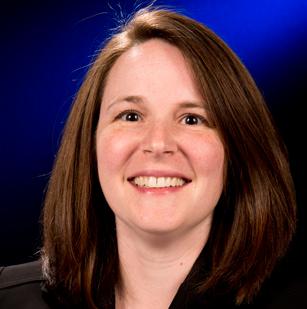
The pandemic highlighted and increased disparities in health access and outcomes for older adults in San Antonio and nationwide.
Ullevig, an associate professor of nutrition and dietetics, hopes to close this gap. The NIH grant will be used to offer a training course to older adults and collect data.
Senior centers have traditionally provided hot meals in a congregate setting, opportunities for socializing and educational outreach. Due to the pandemic, however, many of these centers were closed to indoor activity. During the closures, the centers’ five-day congregate meal service was transitioned to twice-a-week curbside pickup distributing the five meals and delivery for those not able to pick up meals.
Compounding these challenges, at the same time when food insecurity has reached a new height, many local seniors have been isolated without access to internet technologies.
Ullevig will be working with a team of UTSA researchers to advance the project. Her co-investigators include Erica Sosa, associate dean for research and associate professor in HCAP’s Department of Public Health;

public health professors Meizi He and Zenong Yin; and Tianou Zhang, assistant professor in HCAP’s Department of Kinesiology.
The researchers will work with the City of San Antonio’s Department of Human Services and Older Adults Technology Services (OATS) from AARP to implement a plan to increase access to and develop a comprehensive understanding of technology among San Antonio’s older adult population. OATS will provide the devices, internet access, tech support and a five-week training course to the target population. UTSA will provide a 15-week digital nutrition intervention entirely online following the technology course.
The UTSA team is currently designing the nutrition intervention and assessing the needs of older adult community members and staff in San Antonio’s senior centers.
“We aim to increase access to nutrition information that will promote healthy aging,” Ullevig said. “This collaborative project has the potential to positively impact the older adult community by addressing disparities worsened by the pandemic. Providing older adults with the skills and knowledge to access information online can extend well beyond our project and has a potential broader application through the senior congregate meal program nationwide.”
This project is supported by the National Institute of Nursing Research of the National Institutes of Health under Award Number R01NR020303. The content is solely the responsibility of the authors and does not necessarily represent the official views of the National Institutes of Health.
Sarah Ullevig
ENGAGE 22|
TEACHER VICTIMIZATION AND BULLYING
help school administrators and districts when it comes to handling reported incidents.
Byongook Moon
Issues in education and public schools seem to appear in the news daily – from masks debates to bullying to curriculum changes, there always seems to be something to discuss.
A researcher in HCAP is conducting research exploring an overlooked, but serious issue –teacher victimization.
Byongook Moon, a professor in the Criminology & Criminal Justice department, has earned a grant totaling $579,041 from the National Institute of Justice (NIJ) to fund this nationwide study.
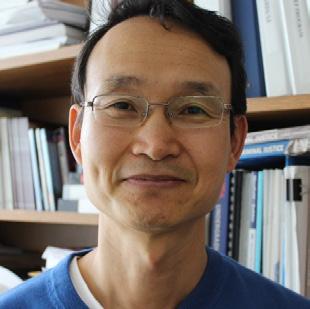
This grant comes on the heels of two previous grants, wherein Moon surveyed teachers in San Antonio. The findings show just how serious the issue is – and as such, he applied for funding to conduct the study on a larger scale.
The new study will survey teachers at the 50 largest school districts across the United States, including New York City, Chicago and Los Angeles. The data collection began in the spring of 2022. This is a longitudinal study that will follow the same teachers over time in order to investigate long-term consequences to teachers, students and administrations.
Moon hopes to shed more light on the oftenoverlooked issue of teacher victimization – and its very serious consequences.
“There are several types of victimization included in the study,” Moon said. “It ranges from physical aggression, theft, verbal abuse, cyberbullying and sexual harassment.” Moon notes that for this study, he is primarily looking at teacher victimization from students, not from colleagues or administrators.
Once the type of victimization is identified, he follows up with looking at the negative impacts that this has on the teachers – physical and psychological well-being, job performance and turnover.
At a time when education is more crucial than ever, and jobs in education are in high demand, Moon believes this research can reveal why teachers are leaving the profession, as well as
“Administrators have to take this issue seriously and find a way to address this properly,” he said.
While the data collection is a massive undertaking, Moon is hopeful this study will bring more attention to teacher victimization, turnover rates and academic performance. If it is successful, he plans to submit more proposals to extend the research even further.
A VISIONARY AWARD
The University of Texas at San Antonio’s Department of Psychology continues to gain recognition as Assistant Professor Dr. Shelby Scott has been awarded the
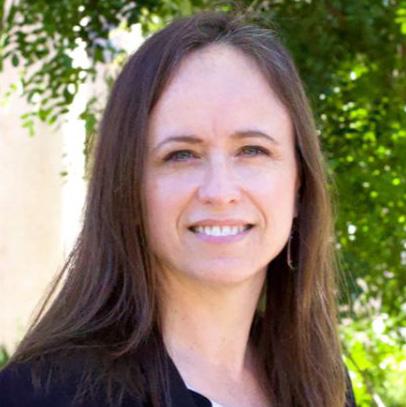
Visionary Grant from the American Psychological Foundation (APF).
Scott is now a two-time APF program winner. In 2013, she won an APF Roy Scrivner memorial grant, and now has won an APF Visionary grant for the project “Intimate Partner Violence in Transgender Romantic Relationships: A Dyadic, Longitudinal Investigation of Actor-Partner Associated Risk Factors.”
The Visionary Grant seeks to seed innovation through supporting research, education and intervention projects and programs that use psychology to solve social problems in priority areas such as at-risk, vulnerable populations, preventing violence, human behavior and health and eliminating stigma and prejudice.
“Transgender and nonbinary people face significant barriers to culturally informed healthcare,” Scott said. “The goal of this project is to better understand the risk factors that predict intimate partner violence, relationship quality, and mental health outcomes in transgender individuals in romantic relationships.”
Scott’s research primarily focuses on barriers to healthcare and improving clinical services for LGBTQ+ families. As the director of the PRIDE Family Studies Lab at UTSA, she undertakes this work alongside graduate students and researchers from other institutions.
Scott worked with two other researchers on the project, Dr. Kimberly Balsam (she/they) at Palo Alto University and Lex Pulice-Farrow (he/
they) at the University of Tennessee at Knoxville. “This project and this grant award would not be possible without these incredible collaborators,” Scott said.
It is Scott’s hope that the grant will provide a springboard for more federal funding toward this important research. “Our goal is to continue building the basic science of transgender individuals and their romantic relationships to inform couple and family interventions and practitioner guidelines,” Scott said.
VETERANS AND TRAUMA RECOGNITION
Professor Sandra B. Morissette has been elected as a Fellow to the American Psychological Association (APA), Division 56 (Trauma Psychology). This national recognition is awarded on the basis of outstanding contributions in the field of psychology that have had a national impact.
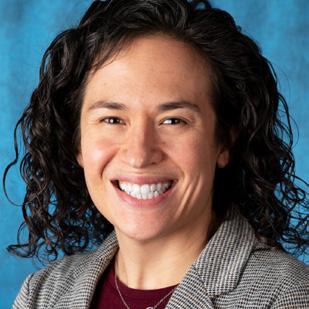
Morissette has dedicated her career to researching and understanding trauma psychology, particularly in the context of veteran support. As a professor and Chair of the Department of Psychology, her research has focused on understanding factors that influence risk, resilience and functional recovery following warzone deployments.
“It is an honor and privilege to be elected to Fellow status of APA’s Division 56, not only to be recognized by APA, but especially because it is a recognition from my peers who are Fellows within the division and share a common passion to advance the field of trauma.”
Since completing her doctoral degree in clinical psychology, Morissette has conducted important research related to trauma, anxiety disorders and other commonly co-occurring conditions. She has received funding from VA, the Department of Defense and National Institutes of Health, and published over 100 scientific articles.
“I am personally proud of Dr. Morissette for having been named an APA Trauma Psychology Fellow as it is a quite prestigious recognition,” said Dean Lynne Cossman. “We – as a college –are also proud to have her and her expertise on trauma psychology, particularly associated with veterans’ experiences, at UTSA and in Militar y City, USA.”
Shelby Scott
Sandra B. Morissette
|23 ENGAGE
During nearly two decades working for the Department of Veterans Affairs (VA), Morissette developed and directed the first cognitivebehavioral anxiety disorders clinic at VA Boston Healthcare System (VABHS), established a new Primary Care Behavioral Health program (PCBH) at VABHS, and contributed to the development of a congressionally-mandated research center for returning post-9/11 veterans in Waco, Texas.
“Notably, Texas has a vast shortage of clinical psychologists, and Waco is an area of particularly high need, neighboring Fort Hood, the third largest military base in the world,” Morissette said. In Waco, among other accomplishments, she established and led a 10-year, VA-funded longitudinal program of research, Project SERVE (Study Evaluating Returning Veterans’ Experiences).
Project SERVE is a network of studies designed to independently and collectively contribute to a better understanding of risk, resilience, and functional recovery processes in post-9/11 veterans and their families following warzone deployments. Although Morissette left the VA in 2015, she continues to actively collaborate and lead projects related to this research at UTSA.
“I couldn’t have accomplished what I have without an outstanding team of SERVE investigators from around the country,” Morissette said. “We are particularly interested in understanding PTSD risk and resilience within the larger context of co-occurring conditions (e.g., depression, alcohol/substance use disorders, TBI, pain, sleep, suicide, nonsuicidal self-injury). Our overarching aim is to develop translational clinical treatment programs using empirically-supported predictors of risk and resilience for PTSD, co-occurring conditions, and functional recovery.”
Morissette received her doctoral degree in clinical psychology in 2001 from Boston University. Her work has contributed in part to a shift in the field to complex co-occurring conditions, particularly anxiety/traumatic stress disorders and addictive behaviors. Moreover, her research has contributed to increased attention on understanding long-term functional recovery processes among returning veterans.
“This work is far from done,” Morissette said. “Although most veterans are resilient and will never develop mental health conditions, risk for PTSD is elevated in the context of their higher trauma exposure. We must continue to build a
workforce of researchers and clinicians to more fully understand and treat the complexities of PTSD and co-occurring conditions, and promote functional recovery.”
In order to be selected as a Fellow for the APA, candidates must show unusual and outstanding contribution or performance in their field and demonstrate national impact. Morissette certainly fits the bill.
“I am passionate about conducting research that can help us better understand how to
role models for younger students and they build marketable skills,” she said.
An example of this influence is clearly seen in alumnus Maverick Crawford. During his time at UTSA, he and his classmates mentored students from Lanier High school.
“I told them about my hardships growing up, and I felt a sense of fulfillment because, at that moment, I could give back to someone else what no one gave to me — encouragement,” Crawford said. “I let them know that no matter
help veterans and improve VA healthcare,” Morissette said. “To me, it is a way to give back, to serve them, for all they have done in service to our country.”
UT SYSTEM OUTSTANDING TEACHER AWARD
In recognition of her impact on UTSA’s undergraduate students, Amatangelo was honored with the 2021 Regents’ Outstanding Teaching Award, the most prestigious teaching award for faculty in the UT System.
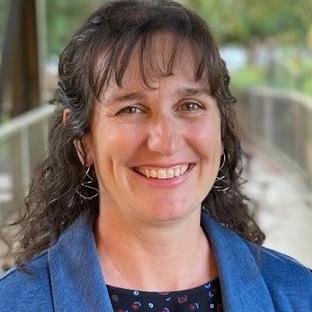
Every semester, students enrolled in Gina Amatangelo’s Civic Leadership Seminar head to local high schools to engage youth in policy solutions. In partnership with districts and community groups, these UTSA students work with high schoolers to produce recommendations to identify and prioritize policy solutions, and share their ideas with leaders.
An assistant professor of practice in the Department of Public Administration, Amatangelo has designed a series of service learning experiences born out of a desire to provide students with true immersion into their community. “When I ask students to plan and lead a workshop, they begin to see themselves as
what situation you find yourself in, never give up on your dreams and don’t let anyone tell you that you don’t have the aptitude to make something of yourself.” After graduation, Crawford was appointed by Governor Greg Abbott to the Texas Council for Developmental Disabilities and went on to complete a Master of Social Work degree.
Amatangelo’s desire for students to forge real connections with people in their community is the purest example of civic engagement.
“Many universities have civic engagement classes that train students to ‘deliver’ civic engagement, but fall short of helping them to establish the crucial two-way relationship in which community members are not just the target but essential collaborators,” said Francine Romero, chair of the Department of Public Administration. “Gina’s projects surmount that typical limitation, allowing the high school students to engage as citizens as well as to imagine themselves as scholars in college.”
Amatangelo does not just aim for her students to earn high marks, but to become great citizens. Her class assignments incorporate activities such as attending City Council meetings, understanding how government agencies make decisions by reviewing case studies and engaging in a budget simulation.
“These activities encourage students to think critically about government, not just from a textbook perspective but from how government actually functions in practice,” Romero said.
Gina Amatangelo
"To me, it is a way to give back, to serve them, for all they have done in service to our country."
ENGAGE 24|
When the COVID-19 pandemic hit and instruction was forced online, Amatangelo pivoted seamlessly and still delivered a highquality experience for her students – first by discussing leadership in times of crisis, and next by hosting 10 virtual community conversations: Compassion in the Time of COVID-19.
“I watched as my students led conversations about what people were observing in the community as we all rushed to find toilet paper and adapt our lives,” Amatangelo said. “We had meaningful discussions about inequality in San Antonio…and how we might grow as a community from this experience.”
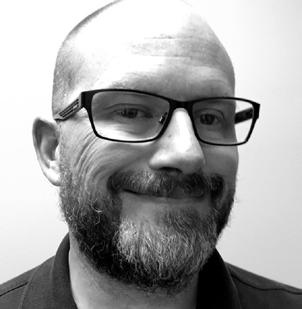
Students frequently cite Amatangelo as not only their favorite instructor, but as a personal influence and someone who genuinely cares for their well-being. Alumna Andrea Ramos Fernandez recalls how, as an undocumented student in 2016, she felt alone and scared until Amatangelo came into her life.
“Professor Amatangelo was the first educator I shared my immigration status with,” Ramos Fernandez said. “I credit her with encouraging me to follow my dreams and believing in my qualities as a leader. Professor Gina Amatangelo has profoundly impacted my trajectory, and her unending dedication to students is palpable in the UTSA community.” Ramos Fernandez is now pursuing a Master of Public Administration at NYU.
Students also frequently talk about Amatangelo’s enthusiasm for fostering community connections. Students are trained as small group discussion leaders and have volunteered with UP Partnership, the City of San Antonio and other community groups.
“Our whole class came in on a Saturday and volunteered as facilitators and assisted with the event,” recalled alumna Sara Morsi. “Her interest in students and our community is boundless.”
This work continued throughout the pandemic as students partnered with SA2020 to support the organization’s community engagement process. Another group of students participated in a virtual international exchange designed to build skills in critical thinking and civil discourse.
It is clear that Amatangelo has a tremendous positive influence on many students who walk
through her classroom doors. From mentoring students to becoming leaders in San Antonio to helping heal trauma, her passion and skills are unmatched.
“I work with a group of talented students who are committed to strengthening our communities. It brings me joy to connect them with opportunities and watch them succeed.”
LUTCHER BROWN FELLOWS
Academic Affairs has awarded seven UTSA faculty members with endowed fellowships for the 2021-2022 academic year.
The one-year, nonrecurring appointments provide substantive funding to help advance their research programs. The appointments are effective from September 1 through August 31, 2022.
“These newly tenured faculty have demonstrated an outstanding record of excellence in their scholarly activities and commitment to student success,” said Kimberly Andrews Espy, UTSA provost and senior vice president for academic affairs. “It is my honor to be able to help accelerate the success of their research programs through this fellowship.”
Jeff Howard is an associate professor in the Department of Public Health and lead researcher for the Consequences of Trauma Working Group at the Center for Community-Based and Applied Health Research. His research concerns traumatic injury, mortality, military/veterans health issues, climate change health impacts and other health disparities. He plans to use the funding from the fellowship to advance his research on drug and alcohol mortality and maternal mortality, with the goal to improve prevention and intervention efforts.
Kellie Lynch is an associate professor in the Department of Criminology and Criminal Justice. She conducts research in victimology, with a specific focus on
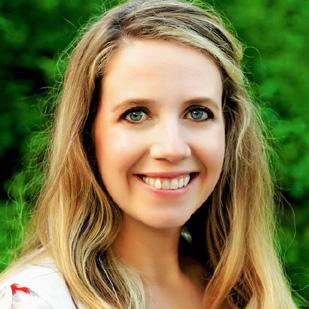
gender-based violence. She intends to use the funds from her fellowship to support her research on improving community responses for gender-based violence victims. Lynch is also a recipient of the UTSA President’s Distinguished Achievement Award in Research Achievement.
ACADEMY OF DISTINGUISHED RESEARCHERS
The UTSA Academy of Distinguished Researchers has selected five senior faculty members for induction, its largest cohort to date since its inception in 2015.
Among them was HCAP’s own Rogelio Sáenz, professor of demography.
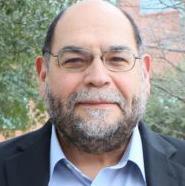
Sponsored by the UTSA Knowledge Enterprise, the academy honors and recognizes exceptional faculty who are accomplished scholars and who share the university’s continuing commitment to research excellence. Through a rigorous nomination process, the academy selects members who foster the highest quality of research and scholarly activity.
Sáenz’s current research is calling attention to and tracking the impact of COVID-19 on the Latino population. He has been nationally recognized for his contribution to scholarship on Latinos and on social justice with an eye toward driving equity, justice and equal human rights for racially marginalized populations. Most recently, this includes collaborative research on a grant funded by the Department of Health and Human Services for strengthening health literacy and recovery from COVID-19 in San Antonio.
His book Latinos in the United States: Diversity and Change was a labor of love, with the goal to increase the visibility of Latinos in this country. It is one of the few books written broadly with numerous topics related to Latinos and is popular with undergraduate classes across the country. Along with his former graduate student and now established scholar, Cristina Morales, they are working on the second edition of the book. Sáenz is the recipient of the 2021 American Sociological Association Cox-Johnson-Frazier Award and the 2020 Saber es Poder Academic Excellence Award from the University of Arizona’s Department of Mexican American Studies.
–Amanda Cerreto
Jeff Howard
Kellie Lynch
Rogelio Sáenz
|25 ENGAGE
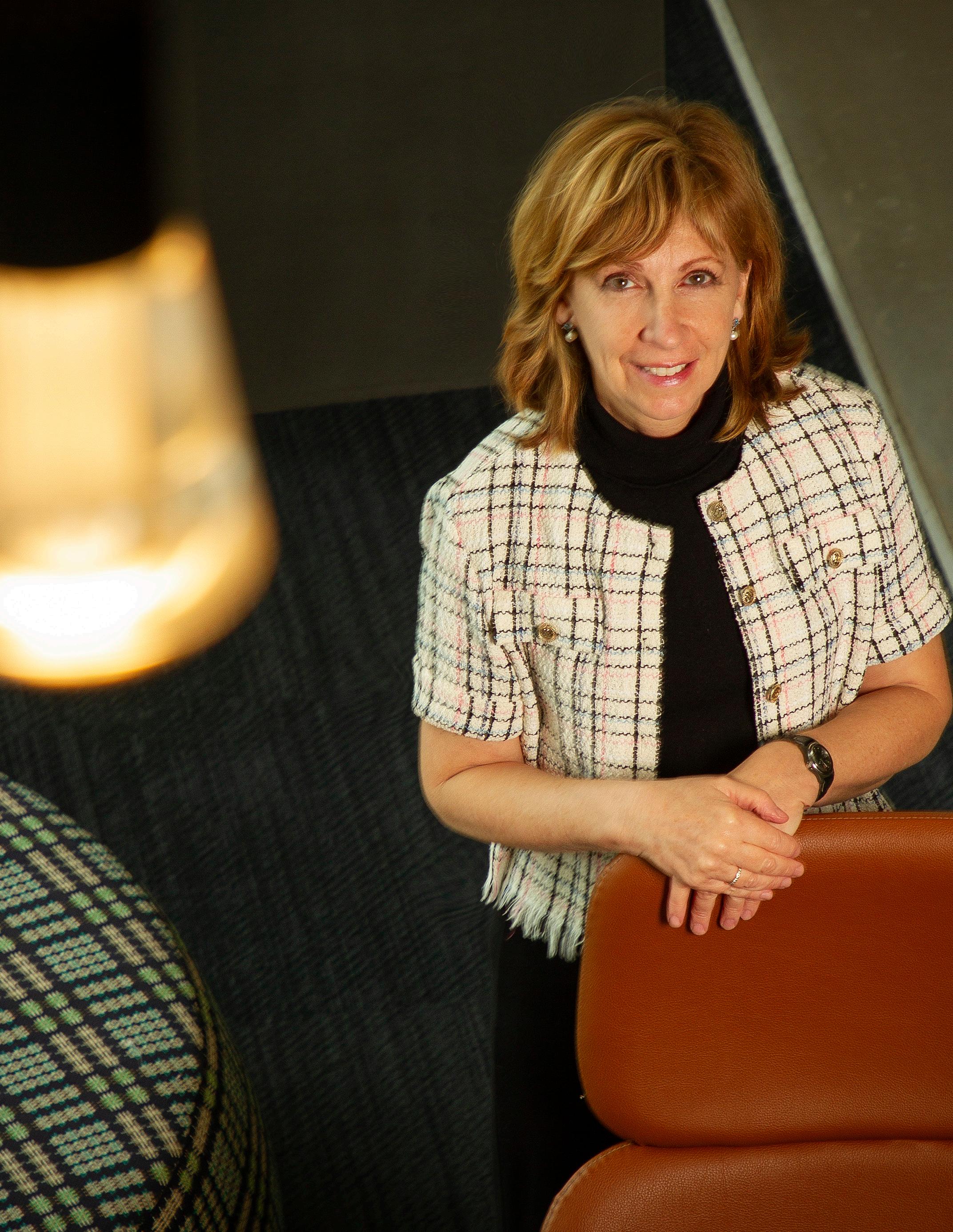 Francine Romero
Chair of the UTSA Department of Public Administration
Francine Romero
Chair of the UTSA Department of Public Administration
ENGAGE 26|
Serving our city through leadership
San Antonio City Council approved the appointment of Francine Romero, chair of the UTSA Department of Public Administration, to serve as a trustee of CPS Energy, the nation’s largest municipal electric and gas utility. Romero, a public policy expert with more than two decades of experience in local public service, was selected from among 26 candidates to fill the vacancy.
Romero’s broad expertise spans the financial, environmental and public policy challenges impacting the Alamo City. From 2016 to 2018, she was the City of San Antonio’s District 8 Zoning Commissioner. She has also served as vice chair of the San Antonio Parks and Recreation advisory board and as vice president of the Phil Hardberger Park Conservancy.
More recently, she has chaired the San Antonio Conservation Advisory Board and was instrumental in working with Mayor Ron Nirenberg in 2020 to identify an alternative funding mechanism for the Edwards Aquifer Protection Program.
“Dr. Romero is deeply committed to doing what’s right for San Antonio and San Antonians,” said UTSA President Taylor Eighmy. “She is a researcher with deep experience in public administration and public policy, and she understands the complex issues facing our growing city. Drawing on her knowledge and her decades of public service, she is well positioned to advocate on behalf of San Antonians for sustainable and smart solutions that secure our city’s future.”
“Dr. Romero has an admirable track record of skillful public service. She is committed to upholding the public trust and exercising responsible fiscal stewardship to protect ratepayers,” said Mayor Ron Nirenberg “Dr. Romero is well prepared for a role on the CPS Energy board. She understands the importance of electricity issues and what they mean to the most vulnerable members of our city as well as our economy.”
In 1998, Romero joined the faculty at UTSA, where she has educated and mentored undergraduate and graduate students seeking to make an impact in public service. Her teaching interests include administrative law and planning and land use law while her research has focused on institutional public policy determinants, local land use policy, 20th century federal and state civil rights policies and Progressive Era policies.
Recently, Romero published a peer-reviewed paper examining how San Antonio’s tree preservation ordinance compares with tree ordinances in Charlotte, N.C. and another paper examining anti-zoning restrictions and the political and policy dynamics of municipal annexation in various Texas cities.
With an eye on federal policy, she has also examined the voter turnout in U.S. Presidential elections from 1952 to 2020, the overlooked northern state civil rights statutes that preceded the 1964 federal Civil Rights Act and the determinants of U.S. Senators’ roll call votes on the nation’s first immigration restrictions laws.
Romero has been recognized with numerous awards and honors for the impact of her public service. In 2019, she was inducted into the San Antonio Women’s Hall of Fame and two years earlier was a nominee for the San Antonio Clean Technology Forum’s Water of Life Award. In 2013 and 2016, respectively, she won the UTSA President’s Distinguished Achievement Award for Excellence in Community Service and was an honoree at the Green Spaces Alliance’s Land We Love Gala. She is also a recipient of the Patriotic Employer Award from the Office of the U.S. Secretary of Defense.
“Civic engagement is the most powerful force in our democracy. It enables people to advocate for the things that are most important to them and provides a forum for communities to bring forward solutions that will secure their future,” said Romero. “I am committed to shining a light on the experiences and priorities of the diverse constituents that I will represent as CPS Energy navigates its future.”
Romero earned her bachelor’s degree in political science from California State University, San Bernardino and her master’s and doctoral degrees in political science from the University of California, Riverside.
– Tricia Lynn Silva
|27 ENGAGE
UTSA welcomes first Lutcher Brown Endowed Distinguished Professor
This spring, The University of Texas at San Antonio welcomed esteemed scholar Rhonda BeLue as a Lutcher Brown Endowed Distinguished Professor in the Department of Public Health.
was awarded $800,000 from the U.S. Health Resources and Services Administration to work with community-based organizations to provide COVID-19 vaccine education and improve vaccine updates among underserved communities who suffered disproportionately from poor COVID-19 morbidity and mortality.
BeLue earned a Ph.D. in health policy analysis and management and a master’s degree in statistics with a minor in epidemiology from Cornell University. She received a bachelor’s degree in biology from the University of New Mexico, Albuquerque.
Rhonda BeLue, Ph.D.
BeLue was hired under the 2020 Connected Program of the university’s Strategic Faculty Hiring Initiative. Part of the Clustered and Connected Program (CCP), the 2020 Connected Program was specifically designed to attract and recruit scholars that will advance the institution’s national role as an advocate for equity and inclusion.
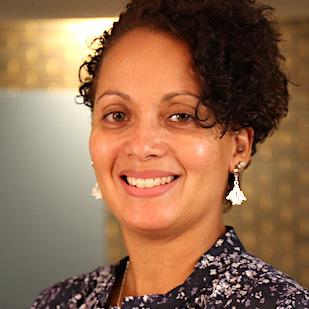
In her new role at UTSA, BeLue will serve as the nexus for leading public health and biomedical innovators to provide real world instruction, thoughtful leadership and expertise to solve problems in health equity and inclusion.
In addition to her faculty position, she serves as the first associate dean for community engagement and partnerships in the UTSA College for Health, Community and Policy (HCAP).
“My research has evolved over the course of my career to be very practice-based,” she said. “I aim to work with healthcare and communitybased organizations to develop policy practice and interventions and to improve the lives of citizens, and make sure to involve citizens and get the voice of the community into the research.”
BeLue was recruited to UTSA from Saint Louis University, where she served as chair of the Department of Health Management and Policy. In 2020, she was tapped by the City of Saint Louis to lead its Department of Health advisoryboard. Prior to that, she served on the faculty of Pennsylvania State University.
She has over 100 peer-reviewed manuscripts, book chapters and other scholarly writings. As with many public health scholars, BeLue’s research has also shifted to include the COVID-19 pandemic. Most recently, she
BeLue also has an eye on student success and ensuring the students of HCAP have a solid foundation to become productive members of their community.
“I am eager to develop partnerships that benefit community members, organizations, and students who are trying to enter the workforce,” she said. “We want to make sure that there's a good value proposition for what we do for all stakeholders.”
“Dr. BeLue’s knowledge and experiences make her well-positioned to serve as our inaugural Associate Dean for Community Engagement and Partnerships,” said Lynne Cossman, dean of the college. “She will play a key role in connecting students and faculty to the community through teaching, research and service. Dr. BeLue's extensive background in community engaged public health—from local to global—combined with her work in health care administration are bringing to HCAP some much needed skills and expertise.”
HCAP was established in 2020 and BeLue has high hopes for its future. Not only does she want to strengthen community partnerships and develop students who can improve the well-being of San Antonio, she is also mindful of the pandemic and the immediate needs of our citizens.
“As a society, we’re in a bit of a period of high trauma, and we need to be acutely aware that there's some building and some rebuilding,” BeLue said. “We need to do things that are sustainable, and that make the community more robust and bring in resources. I look forward to working with UTSA students in the classroom and on research and community engagement projects.”
The Lutcher Brown Endowed Distinguished Professorship No. 1 is one of three distinguished professorships established in 2021 with funds from the Lutcher Brown Endowment for Academic Excellence.
UTSA’s 83 endowed chairs, professorships and faculty fellowships recognize the scholarship and research of the institution’s highest achieving faculty scholars. Endowed faculty members use the funding they receive from these appointments to support their existing and new scholarly activities as well as student academic success.
–Amanda Cerreto and KC Gonzalez
"As a society, we’re in a bit of a period of high trauma, and we need to be acutely aware that there's some building and some rebuilding…"
ENGAGE 28|
UTSA makes history with first female Chief of Police–and double HCAP alumna
The University of Texas at San Antonio (UTSA) is making history by selecting Stephanie Schoenborn BA ’00, MPA ’17 to serve as the next Chief of Police, effective Feb. 1, 2022.
Stephanie Schoenborn
The first woman to lead the UTSA Police Department (UTSAPD), Schoenborn is a 26-year law enforcement veteran who has served as interim Chief of Police since April 2021. She recently led the UTSAPD through the successful Commission on Accreditation for Law Enforcement Agencies, Inc. (CALEA) reaccreditation process.
“It is my honor to appoint Stephanie Schoenborn as the next police chief. This is a historic and exciting moment for UTSA,” said Veronica Salazar, chief financial officer and senior vice president of Business Affairs. “Stephanie has the heart of a true public servant and cares deeply for the Roadrunner community. I am confident she will provide exceptional leadership to the UTSAPD team.”
Schoenborn joins Kim Lemaux of UT Arlington as one of two female police chiefs in the UT System. A Distinguished Command Award recipient from the UT System Office of the Director of Police, Schoenborn will lead UTSAPD’s 45 sworn officers and 65 civilian employees. She is dedicated to fostering a safe and respectful campus environment, developing opportunities for community involvement, creating specialized response units and working to improve the retention and hiring of officers.
“I watched with great admiration as Chief Schoenborn successfully navigated the challenges of serving as interim Chief of Police and demonstrated the resolve and confidence to take on an active leadership role at UTSAPD from day one,” said Michael Heidingsfield, director of police for the University of Texas System. “Her work has made it clear that a national search is not needed and that we have our very best candidate right here at UTSAPD. I applaud, support and endorse her selection.”
Heidingsfield notes that Schoenborn will do “eminently well in her new role as a leader in the University of Texas System Police, which includes 619 sworn law enforcement officers and 899 professional support staff members.”
“I am honored to be appointed as the Chief of Police for UTSA,” said Schoenborn. “I am humbled by the tremendous support I have received
from our department and the entire campus community. Thank you to Senior Vice President Salazar and Director Heidingsfield for their immense support and encouragement. I look forward to our continued success as we explore new opportunities for fostering the relationships with our community.”
Under Schoenborn’s leadership, UTSAPD will continue to expand its community-police partnerships through a wide range of outreach programs and initiatives focused on improved accountability, accessibility and visibility on campus. In recent years, the police department has taken important steps toward building relationships, including implementing Fair and Impartial Policing training, expanding the bicycle patrol program and more. Schoenborn will engage in innovative strategies to promote safety and sense of belonging on campus, focused on mutual respect between officers and the campus community.
A long-time Roadrunner and proud alumna, Schoenborn graduated from UTSA with a bachelor’s degree in criminal justice and a master’s degree in public administration. She joined UTSAPD in 1993 and became a police officer in 1995, graduating from the 60th UT System Basic Police Academy. Promoted to captain in June of 2016, Schoenborn was selected by UT System Police Department to serve as interim assistant Chief of Police for a period in 2018 at UT Medical Branch in Galveston.
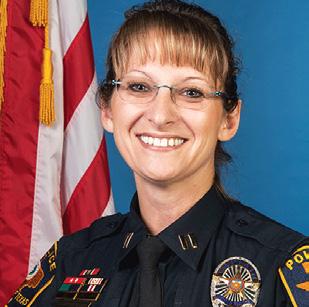
Schoenborn’s commitment to community service extends beyond campus. She holds a Master Peace Officer license and graduated from the 238th session of the FBI National Academy, where she later served on the executive board for nine years, including the role of president of the board in 2019. During that time, Schoenborn was actively involved in coordinating specialized training events in the greater San Antonio region. She currently serves as chairperson for the Alamo Area Council of Governments Regional Law Enforcement Academy Advisory Board.

During her tenure with UTSAPD, Schoenborn has been responsible for the administrative operations of Public Safety, including managing the police department budget, employment, internal affairs and other critical functions. UTSA will host a swearing-in ceremony later this semester.
–Diane Gomez
|29 ENGAGE
Serving San Antonio's veterans
As a nontraditional student returning to the University of Texas at San Antonio to finish her degree, Kimberly Anderson ’19 had no idea she would graduate with a new major – and a way to fuse her passions together to create a meaningful difference in San Antonio.
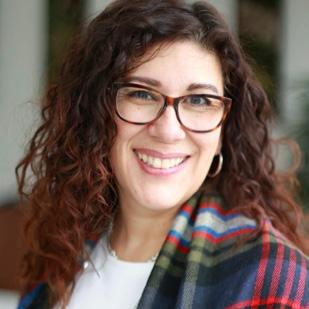
Anderson decided to return to the classroom to focus on a major that would put her in line for a healthcare position, like biology. She took a public health course as an elective, and her course changed almost instantly.
“What I really liked about the College for Health, Community and Policy is that it helped me understand what change I can really affect outside of just putting ‘band-aids’ on things.” Anderson said. “How I can educate people on how important policy and community are to healthcare overall. Are we spending our money making our country well, or are we just feeding this sick-care system that we have?”
As the Director of Wellness for Endeavors, a national service organization headquartered in San Antonio, Anderson takes that distinction very seriously.
Endeavors serves vulnerable people in crisis through comprehensive, effective and innovative services that encourage growth, allowing people to build better lives for themselves, their families and their communities.
Endeavors offers an array of services and programs supporting children, families, Veterans and those struggling with mental illness, disabilities, disasters or emergencies.
Anderson primarily serves veterans in the recently opened Endeavors Veteran Wellness Center, which provides high-quality care to all veterans and their families regardless of discharge status.
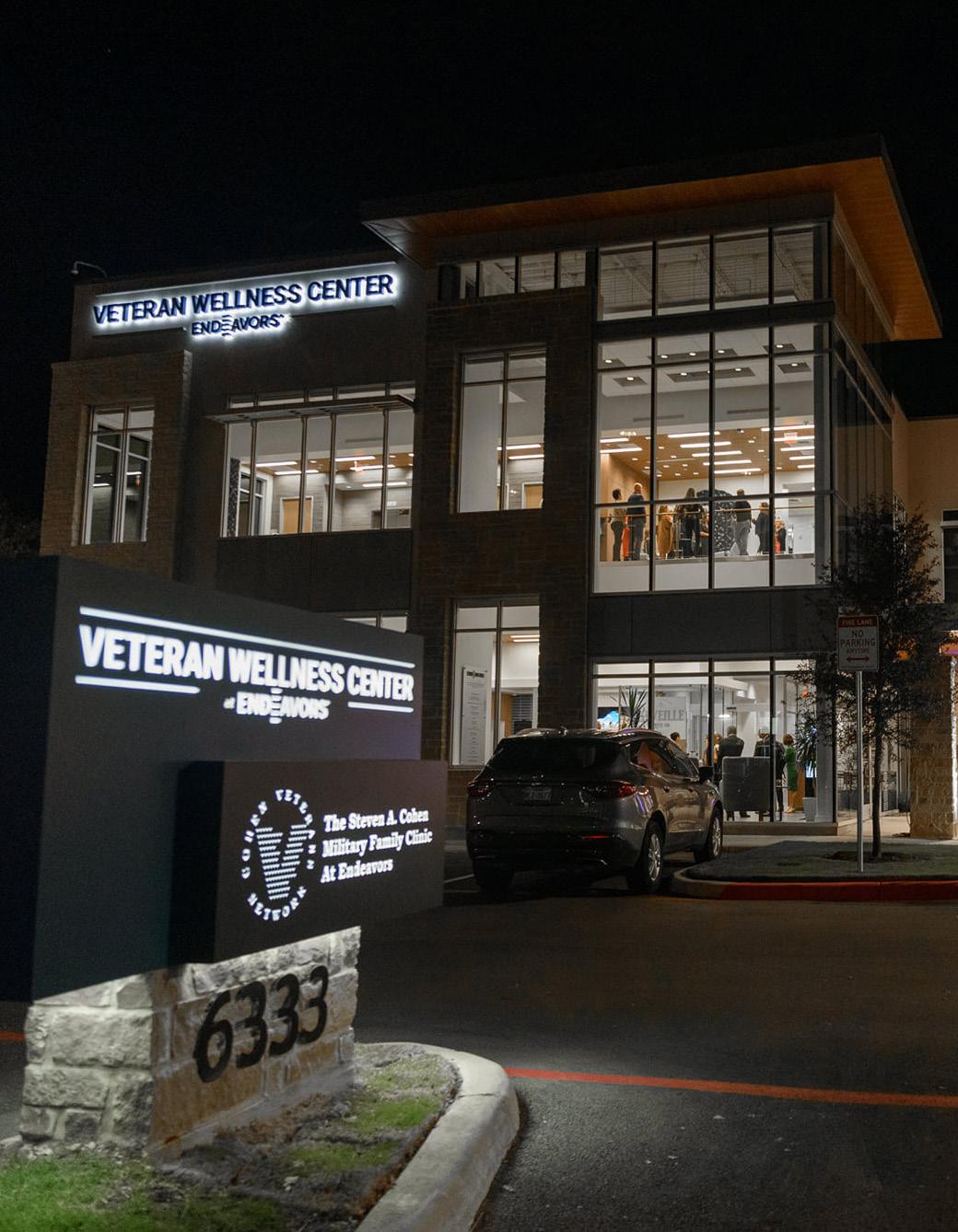
For Anderson, her mission is personal. “I’m the spouse of a veteran, so I have this unique perspective,” she said. “I have a real passion for supporting the family system of veterans and how the socioecological model supports the reduction of veteran suicide.”
As a public health student, Anderson interned with the Stephen A. Cohen Military Family clinic at Endeavors– the first student with that major to intern in their mental health clinic. Prior to that, the clinic primarily employed social workers and social work interns.
When the organization’s Chief of Behavioral Health, Dr. Jill Palmer, discovered her passion and perspective for veteran care, she hired Anderson and put her to work on a “special project.”
“I had no idea at the time, but after I was hired I found out that they were building the Veteran Wellness Center, and wanted me on board to assist in building the program and the model,” Anderson said.
Kimberly Anderson
ENGAGE 30|
For the last two years, Anderson has been building the wellness model for Endeavors and implementing the program. The San Antonio building opened on Veterans Day in 2021, and Anderson now oversees the building and the wellness program – all from her internship as a public health student.
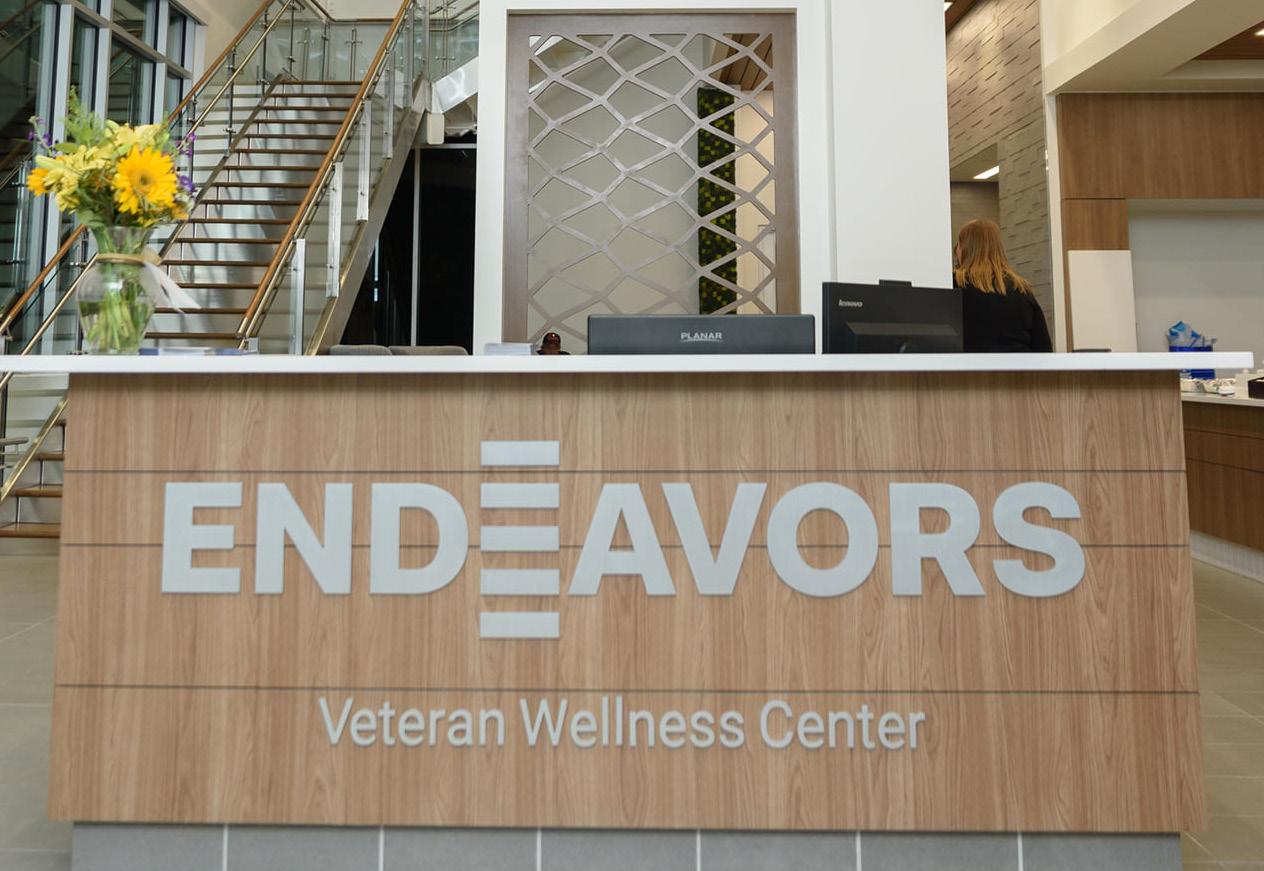
“It was a little bit of luck, and a lot of really hard work and passion,” Anderson reflected. “You have to be passionate – this work is too hard to not be passionate about the population you want to serve.”
As Director, Anderson continues to bring UTSA students in to intern and employ. “The partnership and that collaboration that we have is what has built the Veteran Wellness Center to be so unique in its perspective in the model that we’re using,” she said. “Because we really are taking multiple approaches such as social work, public health, healthcare, and fitness. With the goal of bringing them together and creating this really interdisciplinary and multi-level approach to wellness.”
–Amanda Cerreto
Apart from studying her clients and end-users, Adame notes that other skills learned at UTSA transfer easily into her career.
“I’m using a lot of what I learned in my statistics classes when I’m doing my data research,” she said. “Part of technology is that we have to do market research when we’re looking at providing a solution. A lot of the tools and theories that I learned back at UTSA, I’m applying now.”
Adame joined Webhead alongside her UTSA classmate, Webhead’s founder and CEO, Janie Gonzalez. As a local company, their office has several UTSA alumni and the Roadrunner pride is strong. Both Gonzalez and Adame serve on the Leadership Council for HCAP, and are passionate about giving back to San Antonio and UTSA.
Taking sociology to technology
As most people might know, sociology is the study of human social relationships and institutions. What most people don’t know is how that can translate into a career in tech.
Melissa Adame ’98 has proven that not only can her degree in sociology from UTSA translate to her career, but it is crucial to her every day work.
As a program manager at Webhead, Adame helps to develop technical solutions for different clients in different industries. From a federal department, state agency or a large business to a small “mom and pop” store, she works with them to develop and implement systems that work for their individual needs. And she uses the skills she learned with her degree daily.
“It’s really listening to our clients and understanding their end users to really formulate the best technical solution to meet the client’s business needs and to prompt the end user to take an action,” Adame said. “We spend time researching how the target audience interacts with technology. That’s important when you’re looking at finding the right solution that aligns with the business goals but that also makes sense to the intended audience.”
“I am so proud to be a UTSA alumni – I’m a fanatic,” Adame said. “From the first time I stepped on campus until now, that sense of pride and belonging and family has extended and grown over the years.”
Adame initially chose to study at UTSA because of its size and distance to her hometown of Weslaco – just far enough away, but still close to home. She found a kinship in the community of students that also came from the Rio Grande Valley, and once she started taking classes in sociology, felt an immediate sense of home.
“Sociology had never really occurred to me until I started talking to some advisors,” Adame said. “I took a few classes and then I was hooked. I loved my professors, and made some really good, lifelong friends.”
Adame is grateful for her journey through UTSA – the career she landed in because of it, and the relationships she’s established since then. She shares that passion with her 19-year old daughter, who she says inspires her daily to carry on the tradition of hard-working, successful and communityengaged women in her family.

She advises current students to really throw themselves into their studies and take advantage of all UTSA has to offer. “Take initiative to really get involved in the school, and maximize the opportunities the university offers,” Adame said. At the end of the day, you’re responsible for not just your education, but your experience.”
–Amanda Cerreto
Melissa Adame
|31 ENGAGE Alumni Stories
Diving into state demography

How do population estimates, census counts and budgeting affect the daily lives of average citizens? Does filling out that form indicating how many people live in your household really do anything?
The answer is yes, it does – and in more ways than one might think.
Michael Cline, Ph.D. ’10, has devoted his career to population studies in one form or another. His daily work as State Demographer of North Carolina impacts everything from transportation, schooling and the arts to water systems, sewage, infrastructure and more. And it all started here at the University of Texas at San Antonio.

Cline was working at UTSA’s Institute for Economic Development, helping small businesses conduct market research. “My particular specialty was demographics, which I had done in different capacities since I left Texas Tech,” Cline said. “As I was doing that work, I wanted to learn more skills and improve on that work, and then UTSA started its Ph.D. in Applied Demography program.”
Cline was initially hesitant to enroll; he had already been in the workforce for a decade and wasn’t sure what going back to school would look like. He quickly realized, however, that the program fit his needs exactly and it was backed by a supportive faculty.
“The great thing about the program is it was established to really focus on working on public policy issues, particularly in Texas but also nationwide,” Cline said. “Also, the program welcomed many, like me, who were first generation college students and folks who were returning to graduate school – either to enhance their current career or change to a different line of work.”
When Cline enrolled in the program, it was just getting off the ground. Now, over fifteen years later, it has flourished. The program has generated
more than 60 new Ph.Ds. working in local and federal government, private sector data analytics, higher education, social media and healthcare.
After graduating from the program, Cline took a job at the Hobby Center for the Study of Texas at Rice University where he worked on a range of public policy projects – including one of the first analyses of the Affordable Care Act’s impacts for Texas Counties, the demand for early childhood programs in Texas, and implications of demographic change for transportation demand. For the past four years, he has served as the State Demographer of North Carolina in the Office of State Budget & Management. He has been serving the state by preparing population estimates and projections for all cities and counties and advising the Governor’s office and other state agencies on the implications of demographic change. “State or federal funds are often distributed on a per capita basis, so I need to plan and forecast for cities and counties that are seeing growth so they can receive appropriate funding,” he said.
The forecasting models and data processes Cline worked with in the applied demography program directly apply to the work he does on a daily basis. It’s not all population counts and budgets, however. The work his office does can directly impact policy.
“Demography is a study of populations,” Cline said. “And that’s what policies are for – people. That’s the neat thing about demography. You have an opportunity to work on a lot of different things. I’m not just looking at population, but I’m looking at how demographic change impacts schools. Or how we prepare for more older people. Do we have the capacity to provide the medical and other services for people as they age?”
Cline encourages anyone interested in policy work, planning and population studies to consider getting into demography. “A lot of people go straight through from undergrad to get their Ph.D.,” he said. “There’s a benefit of going straight through, particularly if your plan is to teach, but there’s also a benefit of coming back. If you’re taking that route like I did, your academic work will benefit from your experience. You may have more responsibilities at an older age, but don’t be afraid to reach out for help and look for opportunities to work with your professors and others in the community.”
–Amanda Cerreto
Michael Cline
ENGAGE 32|
Transplants and dietetics
University Hospital in San Antonio is one of the largest hospitals in the city, encompassing hundreds of departments and specialties. At University Transplant Institute, staff includes doctors, surgeons, RNs and dietitians. Rosalynda Rodea ’19 is one of the four transplant dietitians assisting patients and donors during their arduous transplant journeys.
Rodea serves as an outpatient dietitian for the Institute, which handles kidney, liver and lung transplants. She was originally placed with the Institute as part of her clinical rotations with the Nutrition and Dietetics program at UTSA, and leveraged that experience into full-time employment.
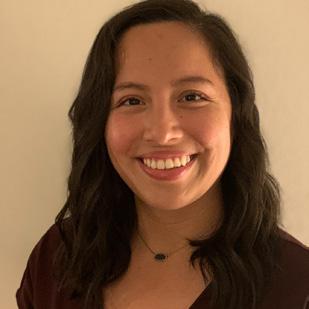
“The UTSA Coordinated Program in Dietetics really provided me with a multitude of experiences,” Rodea said. “And once I got the job here, I was given even more opportunities to succeed.”
Rodea’s day to day workload is heavy and fast-paced. Part of her duties include performing nutrition evaluations for three different groups of transplant recipients, as well as conducting nutrition assessments for potential living donors.
Each donor and recipient have very different and individualized nutrition needs – and the wait times for organs can sometimes be too long. Rodea and her team are looking to improve that.
“In our area specifically, one of the main barriers to organ donation are certain health risks, such as fatty liver, mildly elevated blood pressure and blood sugar or not meeting the BMI criteria.” she said. “So we really try to focus on prevention or improving current health issues.”
A method to decrease the wait time for transplant recipients includes increasing the pool of living donors. In order to enroll healthy
participants who are eligible to donate, Rodea and her team are in the process of developing a program with the intention to educate and incorporate healthier lifestyle changes.
“Smart Bytes for Life is a program that not only targets weight loss to increase the pool of donors, but also aims to implement long term diet and behavior change adherence,” she said. “The overall goal is to improve donor outcomes and also increase the number of living donors.”

Another crucial part of Rodea’s job is to work with recipients posttransplant to ensure proper nutrition guidelines are being met in order for a successful recovery.
“One of the things I love about outpatient work is that I have more time to spend with the patient,” Rodea said. “Essentially, my aim is to help empower them to make decisions that are in their best interests.”
Although her job is far from easy, and has its stressful moments, Rodea credits UTSA with giving her the foundation she needed to impact the lives of people in her community. Her undergraduate degree in community health gave her the springboard necessary to move into the competitive dietetics program, where she flourished and experienced all of the aspects of community health.
“I would encourage students to keep showing up and take every opportunity they can,” Rodea said. “I was able to get a job that I find so fulfilling because of my rotations and the opportunities I took advantage of.”
For Rodea, her job as a transplant dietitian combines her passions for community health, prevention and being a force for change in the lives of her neighbors.
“In community health, one of the main lessons was learning the different levels of prevention,” she said. “As a dietitian, and in this position, you’re able to address all three of those levels. It’s extremely rewarding.”
–Amanda Cerreto
Rosalynda Rodea
33
Alumni Stories | ENGAGE
Perseverance and persistence with Criminology
This past spring, three former students from the Department of Criminology & Criminal Justice returned to campus to network with current students.
Presented by Alpha Phi Sigma, the National Criminal Justice Honor Society, the event was intended to show the various paths from – and to –UTSA, and how dedication and perseverance are the keys to success.
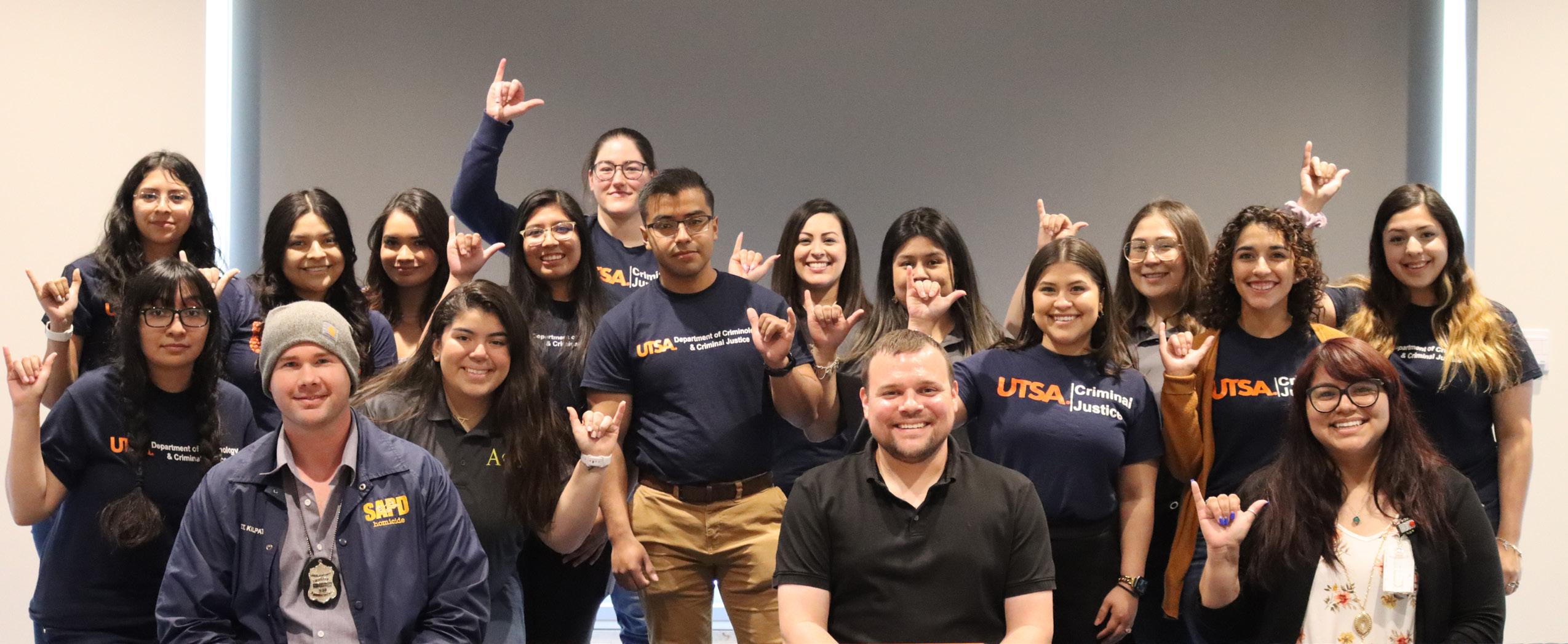
‘Runners first heard from Alma Zuñiga ’17, a reentry specialist for the Bexar County Reentry Center. Her job is to assist formerly incarcerated people with life after release; she assists with tasks and activities such as iPhone tutorials, securing an ID, employment, life skills classes, government enrollment assistance, court mandated classes and more.
For Zuñiga, life as a student was far from simple. She struggled with homelessness, and when she did have temporary housing it came with problems like no water. In addition, she worked two jobs in order to provide for her mother and younger siblings.
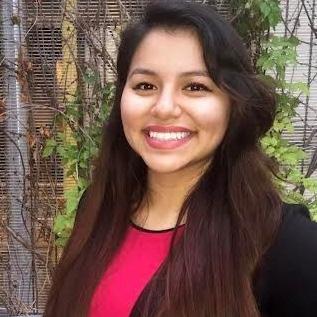
Her experience as a student equipped her with endless empathy for the population she serves. “I do not judge anyone that comes through my doors,” Zuñiga said. “I don’t need to know what they were in for. I need to help them acclimate to life outside.”
Dustin Kilpatrick ’17 came to UTSA a little later in life – out of high school, he enlisted in the US Army. Kilpatrick spent several years volunteering for an Afghanistan deployment, collecting and analyzing threats through communications intercept. Kilpatrick was awarded the Bronze Star for his service.
Upon returning to San Antonio, Kilpatrick pursued his dream of working in law enforcement and joined the San Antonio Police Department (SAPD). While working full time as a patrol officer, he took classes at UTSA.

Kilpatrick stresses that it was invaluable for him to spend time away from other police officers and to broaden his perspective. As a student in criminal justice classes, difficult topics are talked about, and as a police officer, there were times that he could have easily felt maligned. “It was really important for me to hear every side and every opinion,” Kilpatrick said. “To learn other perspectives and keep an open mind is exactly what a police officer needs.” Kilpatrick is now a homicide detective with the SAPD.
The final speaker was Ryan Todd ’18. Todd has recently finished law school and is awaiting his bar exam results. However, his path to UTSA was also marked with challenges – ones that he candidly talked to the audience about.
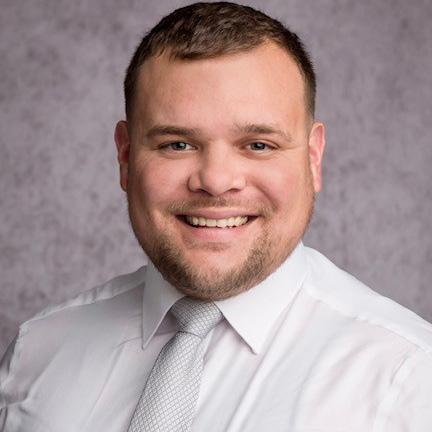
Before coming to UTSA, Todd battled with drug addiction and crime, bouncing in and out of jail and struggling to stay clean. It wasn’t until he hit rock bottom when he realized he needed more out of life.
Todd enrolled at UTSA after two years at Alamo Colleges and was drawn to criminal justice, but soon realized his career options were limited due to his prior convictions. “I began to really think about what I wanted to do, and I realized I wanted to help people that were in the position I was in not that long ago,” he said. “And to do that, I knew I needed to become a lawyer.”
Focused on his goal, Todd took pre-law courses and explored all the opportunities UTSA had to offer for those interested in legal studies. His acceptance and success through law school serves as a lesson to others: no matter how far down you go, you can get back up again.
–Amanda Cerreto
Alma Zuñiga
Dustin Kilpatrick Ryan Todd
ENGAGE 34|
From East Texas to press secretary
Growing up in a small East Texas Town, James Rivera ’18 had never even heard of the University of Texas at San Antonio until he happened to catch a football game on television.

Rivera is the youngest child in his family, raised by a single mother, and when he approached her about wanting to visit UTSA she was a bit uneasy. “UTSA was about a five-hour drive from my hometown,” Rivera said. “But she supported me. We attended a football game and took a tour, and I fell in love with the campus. And honestly, it’s the best decision I’ve ever made.”
Originally a Criminology & Criminal Justice major, Rivera’s course of action changed when he began taking classes to find a minor.
“I took Intro to Public Administration and loved it so much,” he said. “I switched my major right after that.”
Apart from the course material that drew him in, Rivera instantly connected with his professors. “They’re experts in their field,” he said. “They’re very engaging with the students.”
“While at UTSA, James demonstrated a tremendous commitment to mentoring and encouraging others,” said Gina Amatangelo, assistant professor of practice. “He encouraged students to pursue their highest aspirations.”
Rivera fully immersed himself into every opportunity available, and as a result had a very full UTSA career. He served as the Chair of the Alumni Leadership Network for Communities in Schools National Office and has delivered compelling speeches at Communities in Schools conferences on the role their organization played in shaping his educational trajectory. He contributed his perspective on overcoming the challenges of being
first-year student at a large university to the Student Voices blog for the Texas College Access Network. He was elected as a senator for Student Government and was able to advocate for the Downtown Campus. UTSA Public Administration faculty regularly relied on Rivera to meet younger students who were visiting UTSA to learn about the college experience.
As an undergraduate, Rivera worked for Congressman Castro through the Congressional Hispanic Caucus Institute Internship program. Now, Rivera is working as a press secretary for Congressman Gonzalez in Washington, D.C.
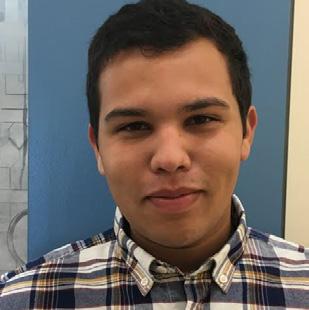
Rivera’s day-to-day work consists of reviewing press material from the district, keeping up with state and national news and discussing communication strategies with the chief of staff. Rivera writes press releases and drafts talking points, connecting with other offices, both in the House and the Senate.
“There’s two sides to the job,” Rivera said. “I have to be proactive and also reactive – I have to keep up with what’s going on in the district and in Texas as well as nationally, and try to figure out where things go to gain traction. But then, something happens out of the blue that we have to be quick on our feet to think about. Do we issue a statement on this? Is it in our lane?”
Rivera credits his undergraduate education with giving him the knowledge to stay on top of such a fast-paced job. “You have to come in knowing the legislative process, the basics of how a bill becomes a law,” he said. “You also have to be able to discern between a federal, state and local government issue.”
Rivera encourages all public administration undergrads to branch out of their comfort zones. As a boy growing up in a small town in East Texas, he never imagined he’d be living in Washington, D.C. The series of events –choosing to come to UTSA, choosing to apply to internships, and taking the risk to apply to jobs – paid off for him.
–Amanda Cerreto
James Rivera
|35 ENGAGE Alumni Stories
Serving the underserved
HCAP aims to improve the well-being of communities by serving the underserved, and faculty try to instill this mission into every student that walks through the door.
When Leti Cavazos ’12 entered the Master of Social Work program at UTSA, she had already been effecting change in San Antonio – but her education and experiences afterward would truly live up to HCAP’s mission.
After many years building programs for shelters, non-profit institutions and recovery centers, Cavazos made the bold move – especially during the pandemic – to open a business to serve those who were perhaps hit hardest by the pandemic.
“The pandemic was my wake up call of, ‘what am I doing with my life?’” said Cavazos. “I’ve been building programs for my whole career. And so I thought, why can’t I build something for myself?”
Cavazos founded The Canneta Center for Healing and Empowerment, which opened its doors to the DFW area in April of 2021. It provides comprehensive, therapeutic counseling for adolescents, individuals and couples. In addition to counseling, the highly-trained staff offers coparenting sessions, psychoeducational groups and pre-marital classes.
Prior to opening the center, Cavazos had worked in a variety of nonprofits and shelters that helped form her ideas on how to run a program effectively to help the community’s most vulnerable citizens.
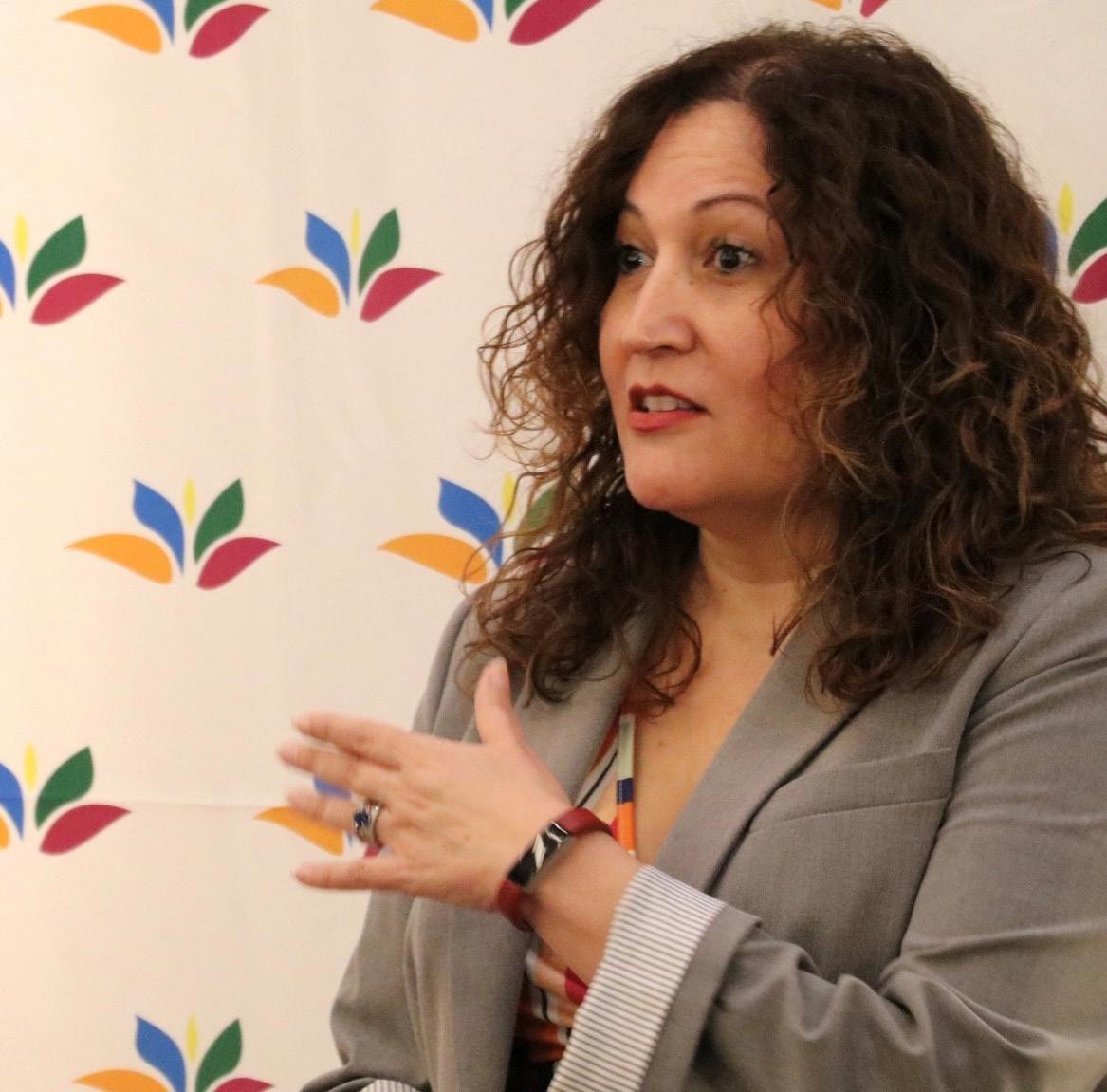
Upon her move from San Antonio to the Dallas-Fort Worth area, she began work at the city’s largest domestic violence center.
“It was an amazing experience,” Cavazos reflected. “In San Antonio, we have the participants there for roughly six months to try and help stabilize them. In this shelter, we only had 45 days.”
Using her foundation as a program-builder, Cavazos then helped build the foundation for the first men’s domestic violence shelter in Texas. She went on to build more programs for other organizations, including a long-term residential home for women and children in crisis.
“I was able to design the program to make sure that we were doing our best to help them not only overcome the trauma, but build capacity to gain employment, and get the skills to increase their earning potential.”
When she was ready to branch out and start her own program, she reflected on her experiences in the field as well as her experiences with her employers. She knew she wanted to build something different for both clients and employees. The Canneta Center has a twofold mission for Cavazos: to serve the vastly underserved Hispanic population of DFW, and to empower employees to dictate their own worth by instituting a sliding pay scale.
Coming from San Antonio, Cavazos was very surprised to see the lack of services in the DFW area for the Hispanic population.
“The more I went out to talk to people, the more I realized it was a missing niche,” she said. Because the need was so strong, services around the area began sending clients to the Canneta Center. Not even a year into its founding, the Center has a memorandum of understanding (MoU) with
a local foundation that will financially support members of the Hispanic population in need of counseling.
“That’s a huge step, because there’s already a stigma with mental health within the community,” Cavazos said. “And now that the financial barrier is taken away, we’ll hopefully knock down some other walls to help people get services and not feel shame about it.”
The Canneta Center is more than a mental health facility; they provide professional training to enhance clinical development, including topics such as research trends, Spanish-speaking trainings and seminars on how to work with a Spanish-speaking population. They have become so popular –and attracted practitioners from all over the world – that the Center has had to put a cap on attendance.
Beyond its services, the Center continues to give back in other ways; employees volunteer with the Hispanic Women’s Network of Texas (HWNT) and the Latinas in Progress Program, which mentors high school students and puts them on the path to college.
“That’s one of the things that I feel really passionate about,” Cavazos said. “If you look at the number of Latinas that have master’s and doctorate degrees, we’re the lowest of all demographics.”
While the growth of the Canneta Center has been tremendous, Cavazos admits it wasn’t without its challenges. “I’m not naturally an extrovert, and having to go out and network and try to help them understand why they should partner with us has been a real growth for me,” Cavazos said.
Despite that, Cavazos feels lucky to have a talented group of willing practitioners to jump on board. “I probably have the best group of people that without hesitation signed up,” she said. “And then seeing the impact that they’re having, and knowing that we’re actually serving a community that hadn’t really been served before, it just fills my heart every time.”
–Amanda Cerreto
Leti Cavazos
ENGAGE 36|
Partnering with the Department of Defense

UTSA doctoral student Tiara Phipps ’20 has been awarded the Department of Defense Science, Mathematics and Research for Transformation (SMART) Scholarship. Phipps will use the award to further her studies in psychology—one of several disciplines in the College for Health, Community and Policy (HCAP). Her research - in collaboration with her mentor, Tina Zawackialso could translate to a new approach for addressing sexual assault.
The award provides students with full tuition for up to five years, summer internships, a stipend and full-time employment with the Department of Defense after graduation. Phipps will work in the U.S. Army Public Health Center. She says it is the ideal setup for her, having been raised in a military family. It is also an opportunity for her to live out one of the missions of HCAP—to develop solutions to complex problems for the benefit of society.
UTSA’s psychology program encourages students to pursue communitybased research. Faculty work alongside students to help them achieve their goals. It is a structure that gives students like Phipps an advantage when it’s time to enter the workforce, as they already have substantial research and data skills under their belts.
Phipps moved around a lot as a child. She earned a scholarship for gymnastics and completed her undergraduate degree at the University of Kentucky. She chose UTSA for graduate education because of her love for San Antonio.
“I lived here the longest, so I consider it home,” she said. “After working, I realized what I loved most was studying, so I looked into the master’s programs at UTSA.”
Her positive experience with the master’s program was a factor in Phipps’ decision to continue her education at UTSA.
“The best part now, as a doctoral student, is that I’m able to work on the kind of research that’s meaningful to me and society,” Phipps said.
Her research into the background and situational variables that mediate the relationship between alcohol and sexual assault has already opened several doors for her. Phipps is also enrolled in the Research Initiative for Scientific Enchancement (RISE) program. It is a federally funded program designed to increase the number of underrepresented faculty, students and investigators who are performing research in the biomedical sciences.
Phipps credits Gail Taylor, associate director of STEM Initiatives in the UTSA Center for Research and Training in the Sciences, for her decision to apply for the SMART scholarship.
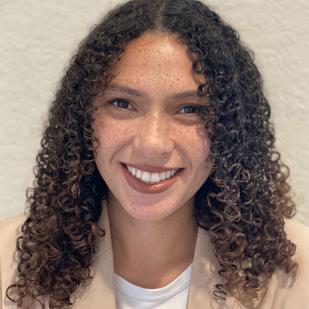
After learning of Phipps’ interest in performing research for the federal government, “Ms. Taylor mentioned the Department of Defense SMART Scholarship and encouraged me to apply,” she recalled.
“I am extremely proud of Tiara’s accomplishments,” Taylor said. “Once RISE helped her to identify this opportunity, she ran with it and developed an excellent grant proposal. Dr. Edwin Barea-Rodriguez, the RISE program director and I wrote a very strong letter of support for her application and the selection committee recognized her exceptional potential to make a major impact on her field of military mental health.”
Upon securing her doctorate, Phipps will join the U.S. Army Public Health Assessment Team. Her work will involve assessing the public health programs and initiatives of the Army and other branches of the military.
By analyzing data and conducting interviews, the team will look into ways to improve or overhaul several of these initiatives, including those addressing sexual assault. The goal is to create interventions that will be dispersed nationwide.
Phipps is grateful for the opportunity to study and work for a cause she believes in and encourages others to pursue their own interests.
“If you want to earn a doctoral degree, my advice would be to find something that you truly love studying–something that you’re driven to know more about—so that it doesn't feel like work when you're doing the tedious parts, like digging through literature reviews,” she said. “It never feels like work when you’re answering the questions that you really want to answer.”
–Amanda Cerreto
Tiara Phipps
|37 ENGAGE Alumni Stories
In Memoriam
Paul Spargur, technology support specialist, passed away suddenly at his home in March 2022.
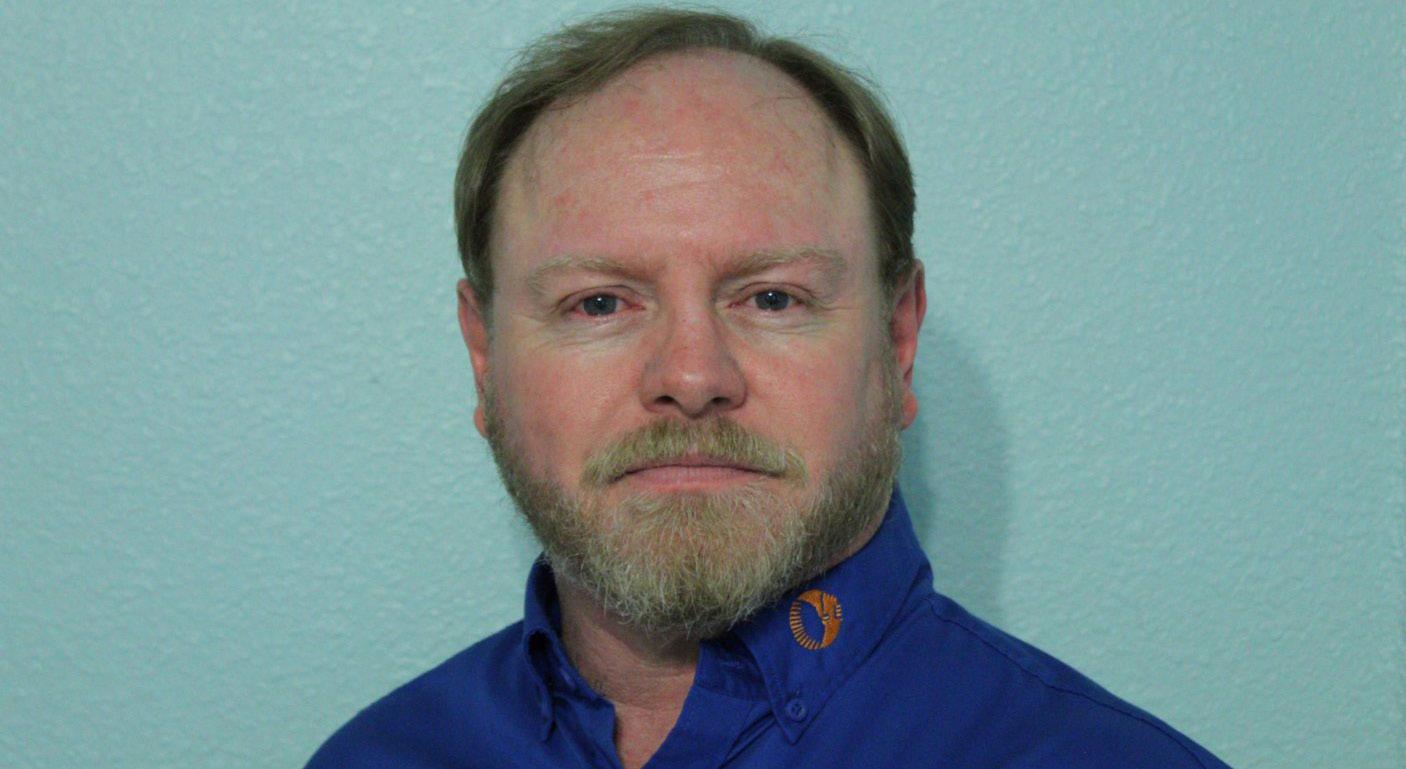
Paul officially joined HCAP as its UTS representative last summer, but he had been a Roadrunner since 2014. He was an amazing member of the staff.
Dean Cossman received more unsolicited compliments about Paul than about any other person in the college. He was cheerful, a devoted husband, father, stepfather and grandfather. Paul proudly wore his H-Cap everywhere and the college will always remember his smiling face in that cap.
Those inside and outside of HCAP noted how friendly, helpful and pleasant Paul was. He made himself available for everyone’s needs without complaint. Faculty and staff are all shocked at Paul’s sudden passing. His loss leaves a hole in the HCAP community.
Dr. George Colfer, professor emeritus at UTSA, passed away on April 3, 2022.
George passed peacefully at home in Sierra Vista, Arizona. George was the founding faculty and long-time coordinator of the Physical Education and Health Program, and later the Kinesiology and Health Program at UTSA.
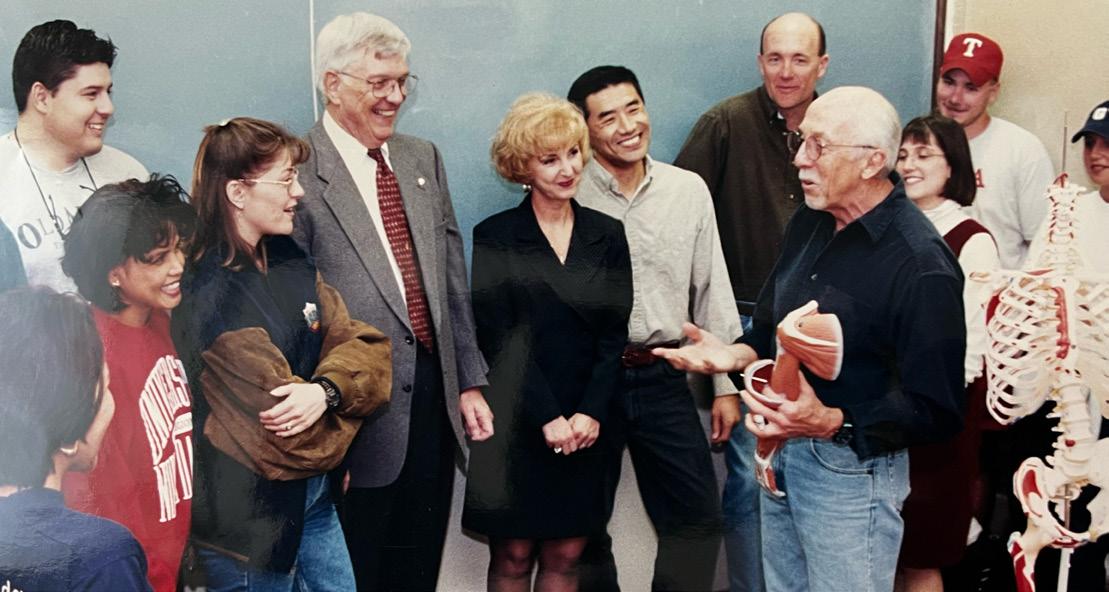
After an early stint of playing football in the Marine Corps and Canadian Football and coaching in the NFL (conditioning coach at the Buffalo Bills), George received his PhD from Texas A&M and joined the UTSA faculty in 1978. George dedicated his career to establishing a first-class teacher preparation program for physical and health education in South Texas and was an outstanding teacher and mentor.
George retired in 1998 and lived a physically active life. George is survived by his daughter Kathy, son Edward and ex-wife Dotty.
Leading from within
When the College for Health, Community and Policy was established in 2020, the country was in the middle of a global pandemic and universities were empty.
There was no ribbon-cutting and little fanfare when nine departments moved from various colleges throughout UTSA, and as such, alumni had little idea anything had changed.
Nearly 20 UTSA alumni banded together to change that. Under the direction of Lisa Hernandez, development director, the HCAP Alumni Leadership Council was formed.
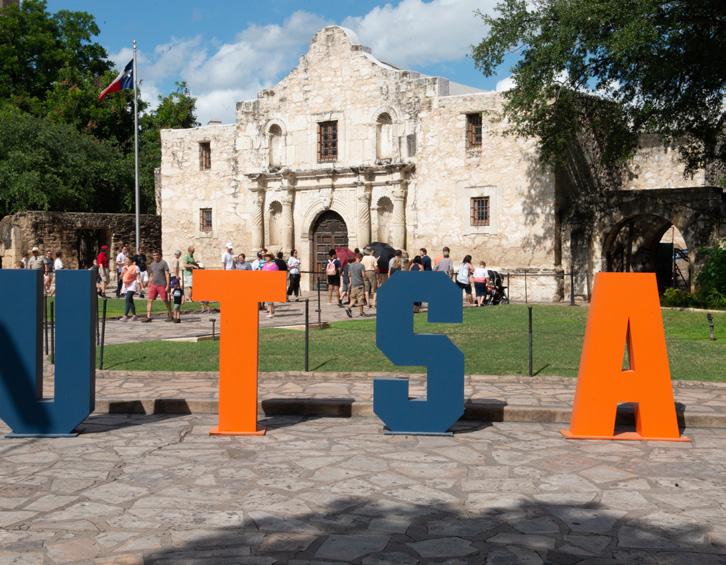
The members work hand in hand with college leadership to bring brand awareness of HCAP and its departments, engage students and faculty, participate in events such as Giving Day and recruit the next generation of HCAP students.
The group is comprised of distinguished alumni and community leaders, ranging across all majors, class years and industries.
Want to get involved? Contact lisa. hernandez2@utsa.edu for more information.
HCAP Alumni Leadership Council
Joel Tabar '07, '10 (Co-Chair)
Katie Vela ’14 (Co-Chair)
Melissa Adame ’98
Christopher Anderson '11
Liz Burt '19
Leti Cavazos ’12
Michael Cline ’10
Jeff Coyle '07
Lisa Cunningham '95, '01
Lauren Ferrero
Andrea Figueroa '06, '11
Geraldine Garcia '06
John Garza '05, '07, '15
Karina Garza '16, '20
Ashley Harris '97
Denise M. Langabeer '90, '97
Mariella Ozuna '10, '16, '17
Daniel Shinaberry '16
Ross Willis '92
Elsa Guerra Williams '82
Dr. George Colfer
Paul Spargur
ENGAGE 38|
CLASS NOTES
Karen Stepherson (Criminology & Criminal Justice) holds a Master of Arts degree in humanitiescreative writing from the University of Texas at Dallas (UTD). She is a Desert Storm veteran and a published author. She was once a special education teacher, but decided to return back to higher education and is currently serving as the academic compliance coordinator for Collin Country Community College District. Stepherson took a couple of life changing trips to Accra, Ghana where she taught English at a local school, and a trip to Buenos Aires, Argentina further cultivated her poetic endeavors. She enjoys writing, sporting activities and working with children and youth. Most recently, she has published two poems and one photograph in Forces Literary Magazine and is currently working on a novel.
1994
Jose Galvan (Political Science '92, Criminology & Criminal Justice) was commissioned into the U.S. Army as a Second Lieutenant. He retired from the U.S. Army in 2015 as a Lieutenant Colonel and flew the AH-64 attack helicopter. His wife and three kids retired out of Fort Hood, Texas and live in Harker Heights, Texas. Galvan’s oldest son, Joseph, graduated from UTSA in 2021 with a BS in mechanical engineering. He and his son both work for Kord Technologies. “I am a Program Manager, assisting the U.S. Army managing a foreign military sales contract facilitating military aviation training for the Royal Netherland Air Force,” Galvan said. “My son works in the research and development sector, assisting Kord with its laser program. Go Roadrunners!”
James Parrack (Criminology & Criminal Justice) retired in June from the US Army after more than 35 years.

However, she always had it in the back of her mind to do something in politics. Two things held her back—her two children were young and San Antonio is such a big market that it put her off of running for an elected position. “In 2019, two things happened—my children became teenagers and I moved to Helotes,” Salazar said. “Suddenly, I didn't have any excuses. I decided to run for Helotes City Council, Place 2 and won! It's been an honor to serve the citizens and businesses of Helotes. I'll be running for re-election in May.” A week before Salazar won the election, she started a new job with the Omnia Group, a behavioral assessment company. “I'm thankful that I have my sociology and psychology education to help me understand the science behind how the behavioral assessment works, so I can explain it to our clients and help them use the assessment to attract, select and develop their employees.”
2000
Mary Helen Maria Elena Gonzalez (Sociology) took on a new role in January of 2022. She is a Biopharm Rare Disease Account Manager for Calliditas Therapeutics US.
2006
Gilbert V. Castillo, Jr. (Psychology ’01, MS in Psychology) transitioned from US Marine Corps active service in November of 1998, before attending UTSA.
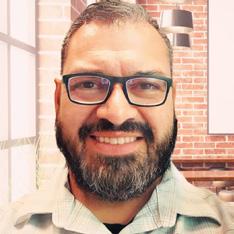
Alec Vasquez (Master of Public Administration) is currently working as a senior business analyst with the City of San Antonio. He served as president of the San Antonio Texas Exes, an alumni chapter for UT Austin, from 2019-2020.
2007
Dina Wilson (Sociology) is enjoying a progressively advanced career and is on several simultaneous work projects. She has also adopted two cats and raised a son she is very proud of.

2009
Ray Baray (Master of Public Administration) is the new chief of staff for the International City/ County Management Association (ICMA). ICMA is based in Washington, DC and is the world's leading association of professional city and county managers and other employees who serve local government. Prior to joining ICMA, Ray served as the chief of staff/assistant city manager for the City of Austin.
Andres Lopez (Criminology & Criminal Justice) serves as a K9 unit sergeant for the San Antonio Airport Police. His nephew, Caleb Lewis, is an outside linebacker for UTSA Football.
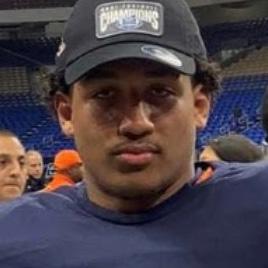
2016
Linda Salazar (Sociology, Political Science) began a job as a corporate trainer in 1996 and has enjoyed designing, developing and delivering training that helps employees and their companies achieve their goals.
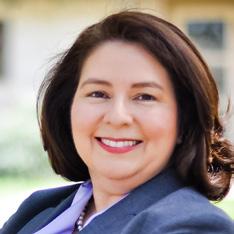
Employing the research and analysis skills gained through his MS, he has spent his second career largely in academia. He spent about seven years working for the Alamo Colleges in Institutional Research, and left as the founding IR Director at Northeast Lakeview College. He taught middle school for three years at SAISD, and continued his higher ed career at the University of the Incarnate Word as their director of assessment & accreditation in the HEB School of Business and Administration. He and his family (wife Erika, four-year-old twins, Joaquin and Viviana) have been in Lubbock, TX since January 2021. Castillo is currently the director of assessment and accreditation for the School of Education at Texas Tech University. “As a PROUD alumnus, I continue to be an active supporter of UTSA through various events and contribution themes.”
Jayla Williams (Sociology) quit her job in 2017 to start her own business (The Celebrity Suite). As a master hairstylist with multiple years of experience in the beauty industry, she became a salon suite owner. “In doing this, I became a celebrity hairstylist working with major networks like We TV, People TV, BET, Fox, Fox Soul & more!” Williams says. “I have also launched a hair extension company, MillionHeir Hair, that dedicates a portion of profits to financial literacy in African American communities. I'm super excited about where my entrepreneurship journey will take me over the next few years. I'd like to encourage any student, staff, or alumni: you can have whatever you set your mind to. Pray, work hard, network and be patient. YOU GOT THIS!”


1992
|39 ENGAGE
CLASS NOTES
Lucero Núñez, (Psychology) is currently working for Action Behavior Centers as an RBT and in grad school working towards her MS in psychology with a specialization in applied behavior analysis to become a board-certified behavior analyst. “I wouldn't be where I am today without the help of my professors at UTSA!! Go Runners!”
MaryAnn Rodriguez (Criminology & Criminal Justice, Public Administration) has become a homeowner and a mother since graduating. She has also started a new job in the nonprofit sector. “I am proud to be first-gen and have a lot of love for my alma mater!”
2019
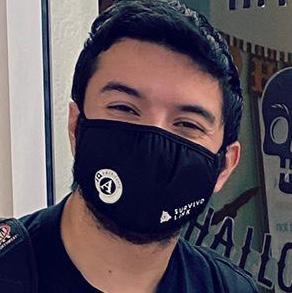
Gabriel Alvarez (Criminology & Criminal Justice, Psychology) graduated from Arizona State University in Spring of 2022 with two degrees: a Master of Science in Criminology & Criminal Justice and a Master of Public Administration. He was recently accepted into the University of California-Irvine’s doctoral program in criminology, law, & society in the School of Social Ecology. “The UCI program is number two in the nation for graduate education in Criminology and Criminal Justice, and I know that without the faculty from HCAP, I would not be where I am today.”
Cassandra V Galvan (Public Health) pursued an MS in business and graduated in 2020. She has recently started a position with Parallon as a manager in training and hopes to grow within the company as she take on new opportunities.
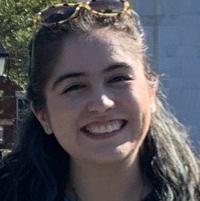
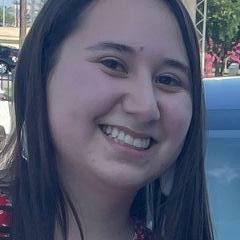
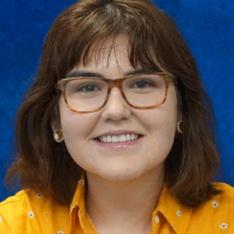
Mark Ramirez (Psychology) is nearly done with his MS program in clinical mental health counseling. He currently works for Leadership and Volunteer Services at UTSA. He and his wife also recently welcomed their first child, Claire, into the world.
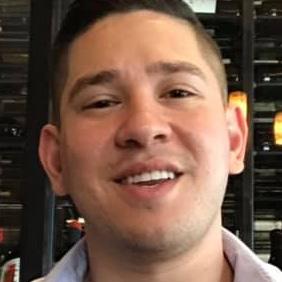
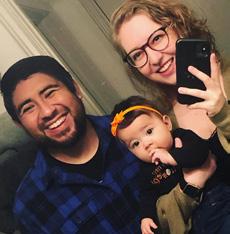

2020
Kelsey Tabor (Psychology) is currently attending graduate school at UTSA, seeking a masters in curriculum and instruction with teacher certification in grades 4-8 ELAR & SS. In August 2021, she had her second son, and her family of four is set to move into her husband’s family’s former home. Tabor started a new full-time job at the end of November 2021 as an assistant teacher at a head start for ages 3-5.
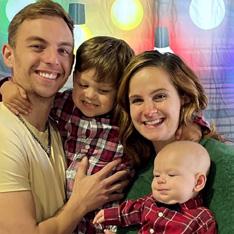
Vanessa Garcia (Master of Public Administration) is moving to Tulsa, Oklahoma for a job as a legal assistant with the Social Security Administration. “I am passionate about public service and serving my country,” she said. “I am excited for this new opportunity.”
Christine Hinojosa (Sociology) was able to walk for commencement in December alongside Iliana Torre, a close friend since middle school! She is currently teaching chemistry in her hometown in the Rio Grande Valley. “I’m glad to be teaching our new generation of doctors, nurses and engineers!” She got engaged to her high school sweetheart Matthew and they bought a Tesla together. Matthew is next to graduate from UTSA.
Paola Montufar (Psychology) began a developmental psychology PhD program at NYU after graduation.
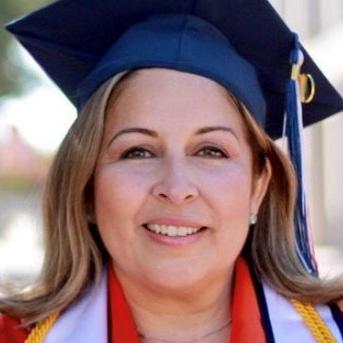
Mark Perez (Master of Public Administration) began the UTSA MBA program after graduation and is set to graduate in 2023. Perez maintains a 4.0 GPA while mentoring for My Brother’s Keeper and serves as a graduate teaching assistant for business ethics and business speech courses. He is considering a Ph.D. program for fall 2023.
John Paul Phillips (MS Health and Kinesiology) has been accepted into several Doctor of Physical Therapy programs. He will begin this new journey this summer.

Susie Soliz (Health) is a graduate student in the public administration program. For the past seven years she has been attending school nonstop. As a nontraditional student, she went back to school and got her GED in 2016. In 2019 she received an associate of science, and in August of 2021 she received her bachelors of science in health from UTSA. “I thank God for the support He has given me through my husband,” Soliz says. Soliz is a wife, a mother, grandmother and stepmother and a student, and an alto in her church choir. “Some advice I like to share with others, is never give up on your dreams,” she says. “If you have a vision for something, to serve or want to make a change, take the first step and walk in faith. Never be afraid to move forward in life. My hope is to make a difference and leave a legacy and inspire others, regardless of what happens in life, keep moving forward: learn from your mistakes, and if you fall get back up and try again.”
Morrelia Villarreal (Criminology & Criminal Justice) planned on going into the workforce right after graduation, but is now pursuing a masters in social work. “This was a tough decision to make, but I did it for my son, myself, and for the people I will later serve in my career,” she said.
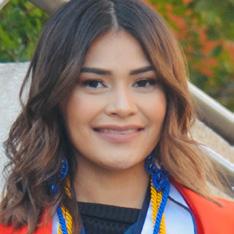 2021
2021
2018
ENGAGE 40|
UPCOMING COMMUNITY EVENTS
Thursday, September 29, 2022
Dean’s Community Lecture Series Digital divide: more than internet
Wednesday, November 2, 2022
Dean’s Community Lecture Series Mental and physical health in sports Sponsored by the Spurs!
Wednesday, February 9, 2023
Dean’s Community Lecture Series Building Entrepreneurship in the Community
Friday, March 3, 2023
An evening of WOW (Wellness on Wheels) at La Cantera Resort and Spa
Thursday, April 13, 2023
Dean’s Community Lecture Series
For more information, visit hcap.utsa.edu/events

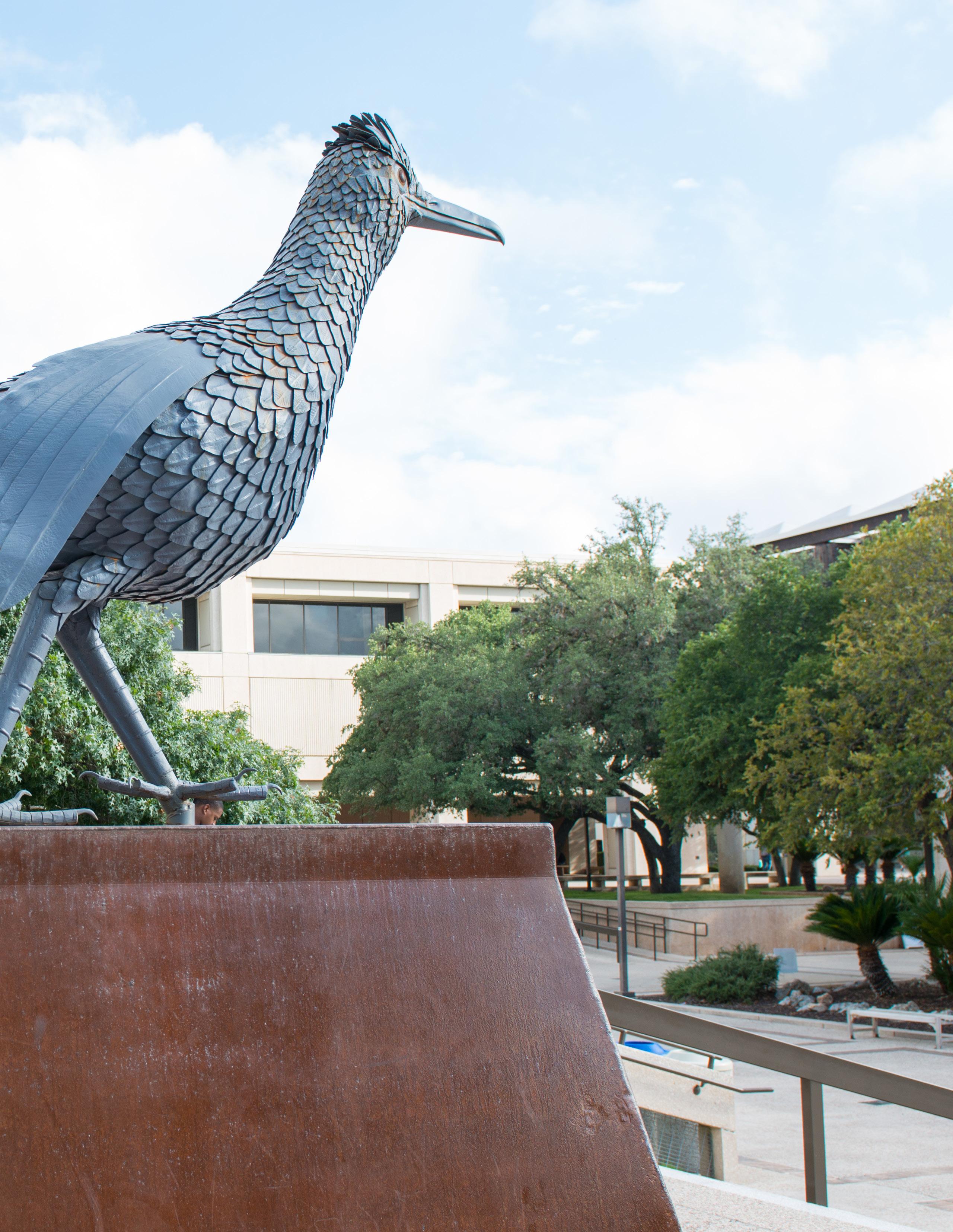
501 W. Cesar E. Chavez Blvd 1 UTSA Circle San Antonio, TX






